Few exterior palettes turn heads like the marriage of an inky façade and honey-toned timber. Designers celebrate black houses with wood accents for the way deep color recedes so foliage, mountains, or prairie skies can shine, while warm grain softens austere lines. From Scandinavian cabins to North American farmhouses, the combination has moved from niche to mainstream, thanks to modern cladding systems and readily available sustainable lumber. When specified thoughtfully, the duo offers more than good looks: darker siding can harvest passive solar warmth in cooler seasons, and rain-screen detailing behind wood keeps walls dry and energy bills steady. Dive into twenty actionable ideas that show how strategic timber placement against a charcoal backdrop creates enduring style and practical value.
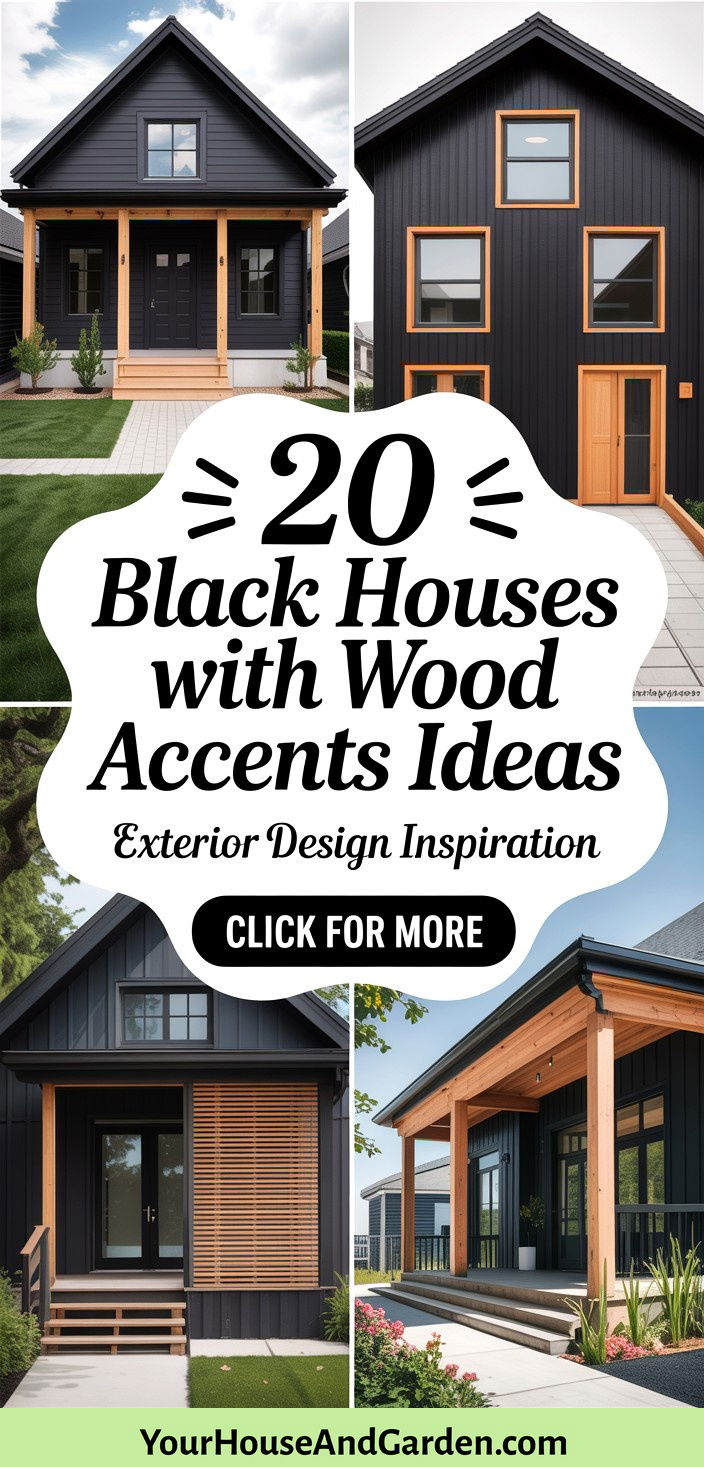
1. Cedar-Clad Portal Entry for Your Black House
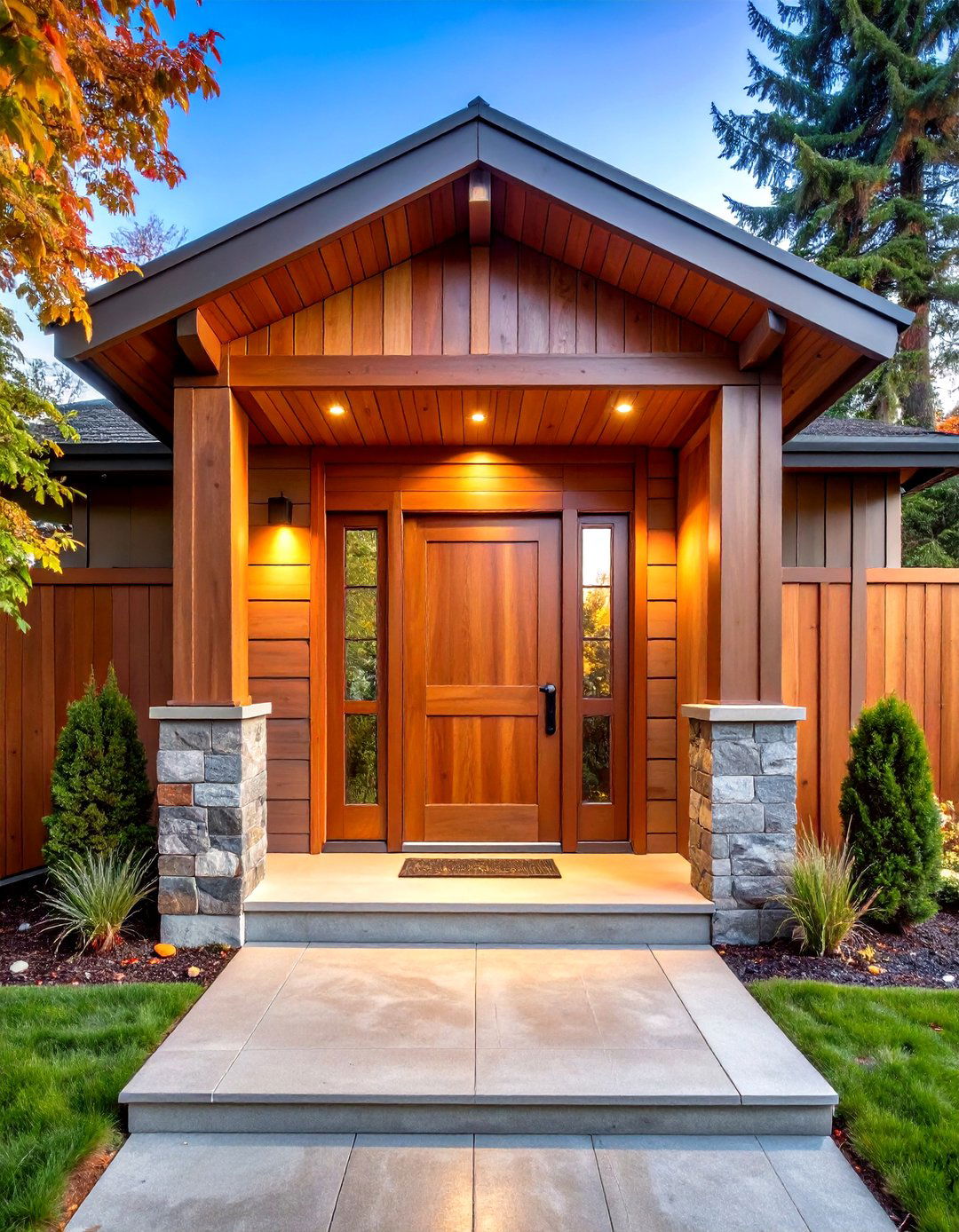
A striking portal-style entry instantly grounds a black house while guiding guests to the front door. Frame the opening with thick cedar boards installed vertically so their glowing grain breaks the long, dark planes of metal or fiber-cement cladding. Extend the same boards across the soffit to blur the threshold between exterior and interior and to shield the door from rain, prolonging its finish. Because cedar is rich in decay-resistant oils, a simple clear coat is all that’s needed; left bare, it will weather to a silvery patina that still reads warmly against black. Warm LED downlights further accentuate the timber at night.
2. Tongue-and-Groove Soffits That Glow Beneath Black Rooflines
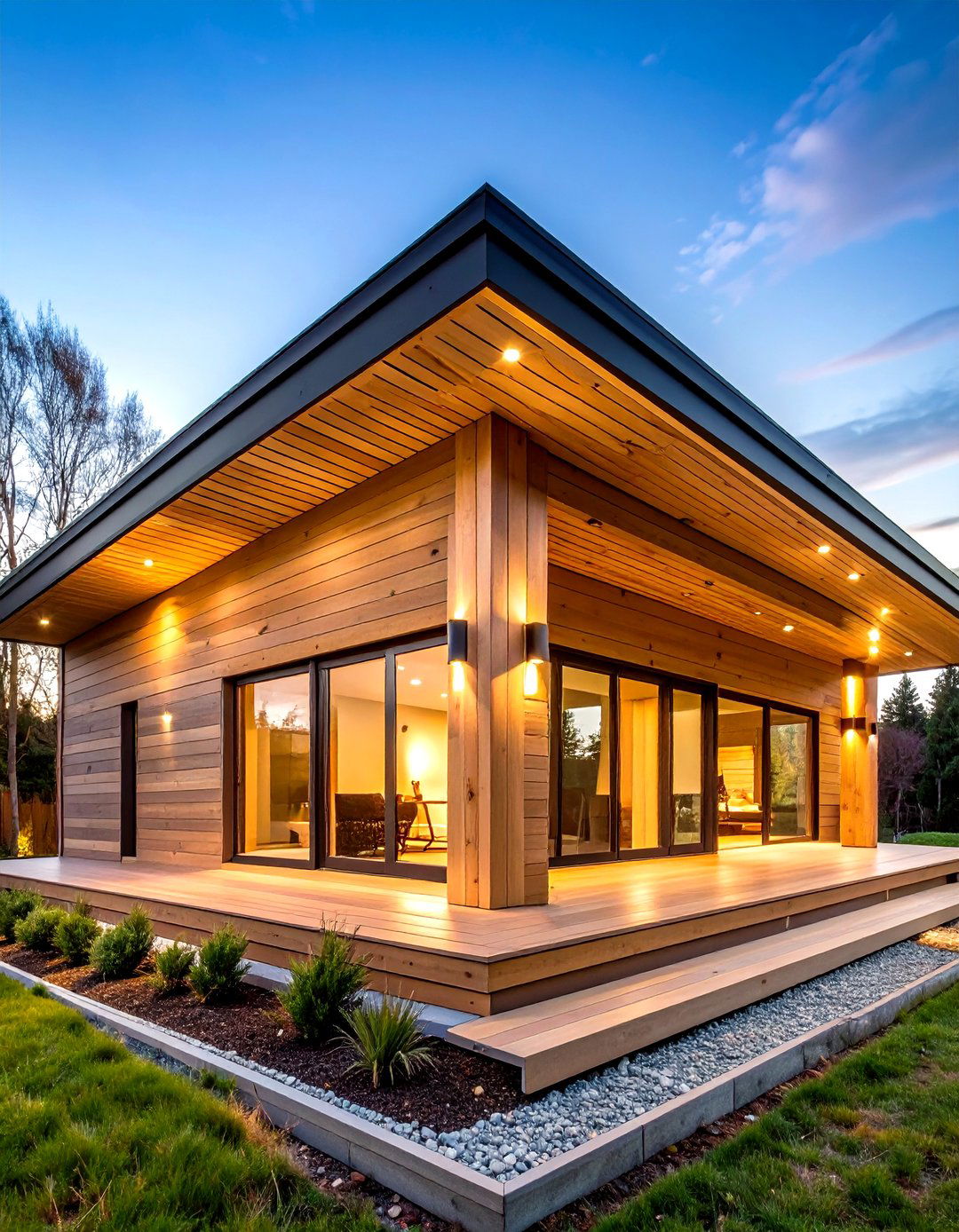
Unlike neglected eaves on many builds, the underside of a black house can become a design feature when lined with tongue-and-groove pine or cedar. Horizontal planks stretch sightlines outward, making narrow façades appear wider, while tight-gap vertical strips emphasize lofty gables. Apply a penetrating UV oil instead of solid stain so the golden grain radiates at twilight, offsetting the matte darkness above. Because soffits are shaded from harsh sun, the finish ages more gracefully, reducing upkeep even as it injects warmth wherever occupants linger beneath overhangs. Subtle soffit lighting turns the plank ceiling into evening art.
3. Shou Sugi Ban Accent Panels on Black Walls
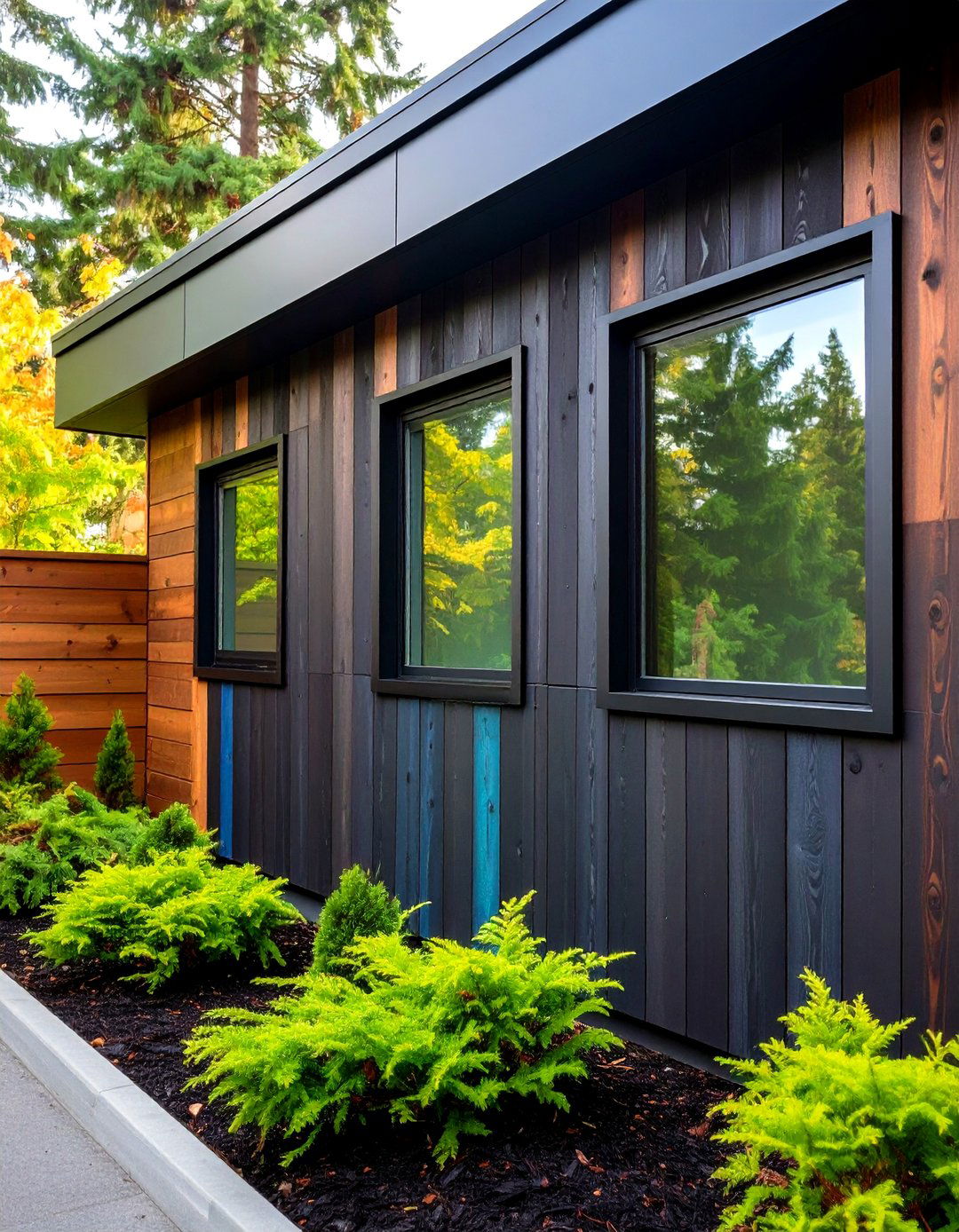
For homeowners who crave depth without color changes, char the wood itself. Shou Sugi Ban—traditionally cedar scorched, brushed, and oiled—creates jet-black boards with iridescent texture that contrasts beautifully against smoother cladding. Mount narrow charred-wood panels in vertical stacks beside picture windows or across a second-story bump-out to break up massing, then echo the material again on a backyard privacy wall for cohesion. The carbonized surface is naturally insect and rot resistant, so you gain durability while avoiding chemical preservatives. Re-oil every few years to retain a subtle sheen, or let the char weather matte for a soft, charcoal-dusted finish that pairs effortlessly with raw timber highlights.
4. Horizontal Cedar Banding Around the Black Façade
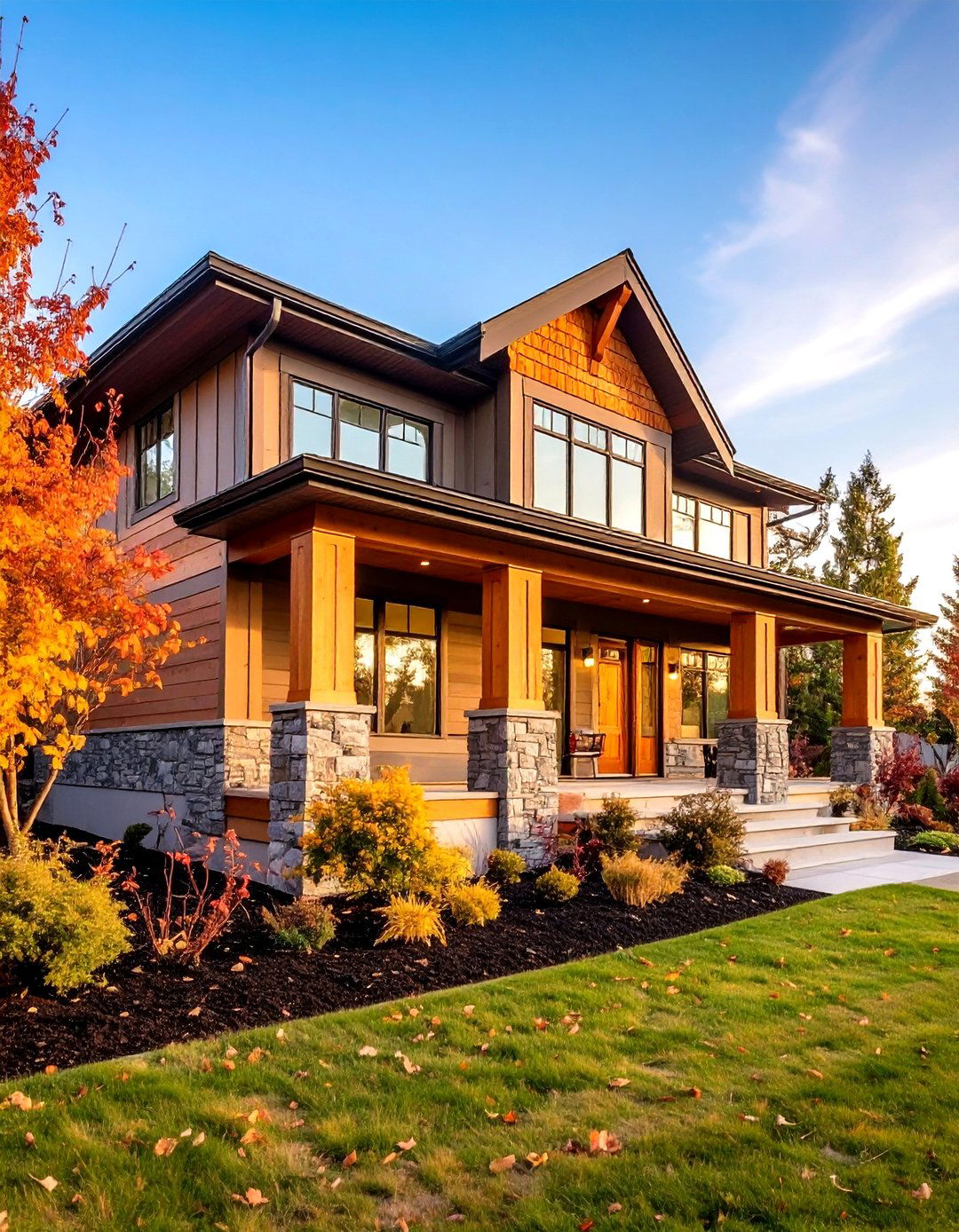
Running a continuous cedar belt around a black house at mid-wall height or just below rooflines offers instant layering. The warm band separates upper and lower volumes, helps conceal floor-level changes, and provides a built-in ledge for soft downlights. Opt for two-by-one tongue-and-groove boards spaced with a shadow gap so the strip casts delicate lines that echo window mullions. Set the band proud of cladding on concealed clips to promote rear ventilation, extending wood life. Seal the underside with breathable exterior oil to avoid trapped moisture, and align the band with interior sill or ceiling levels for visual flow inside.
5. Timber Pergolas Enhancing Black Exterior Living
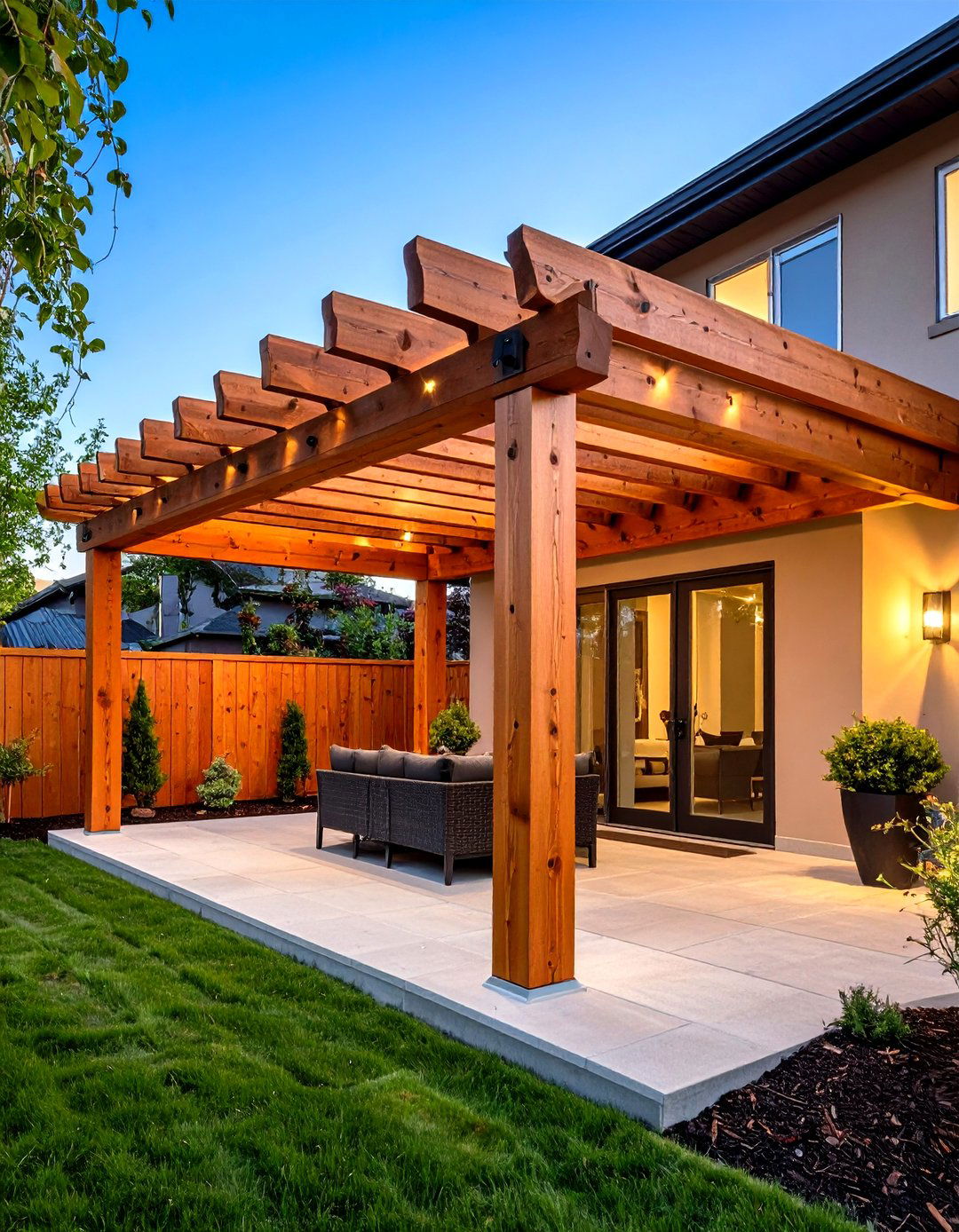
A timber pergola attached to the sun-facing façade introduces dimensional shade and adds livable square footage just outside sliding doors. Use laminated fir or cedar beams stained a shade lighter than the black siding to accentuate contrast and showcase crafted joinery. Slats set at 8-inch centers filter afternoon sun, reducing cooling loads while projecting moving shadow patterns across dark walls. Anchor columns on concealed steel shoes and pull electrical conduit before decking so festoon lighting installs without visible wires. Plan climbing vines—wisteria, grape, or passionflower—to soften edges over time and create a scented, living canopy.
6. Timber-Framed Porch on a Black Farmhouse
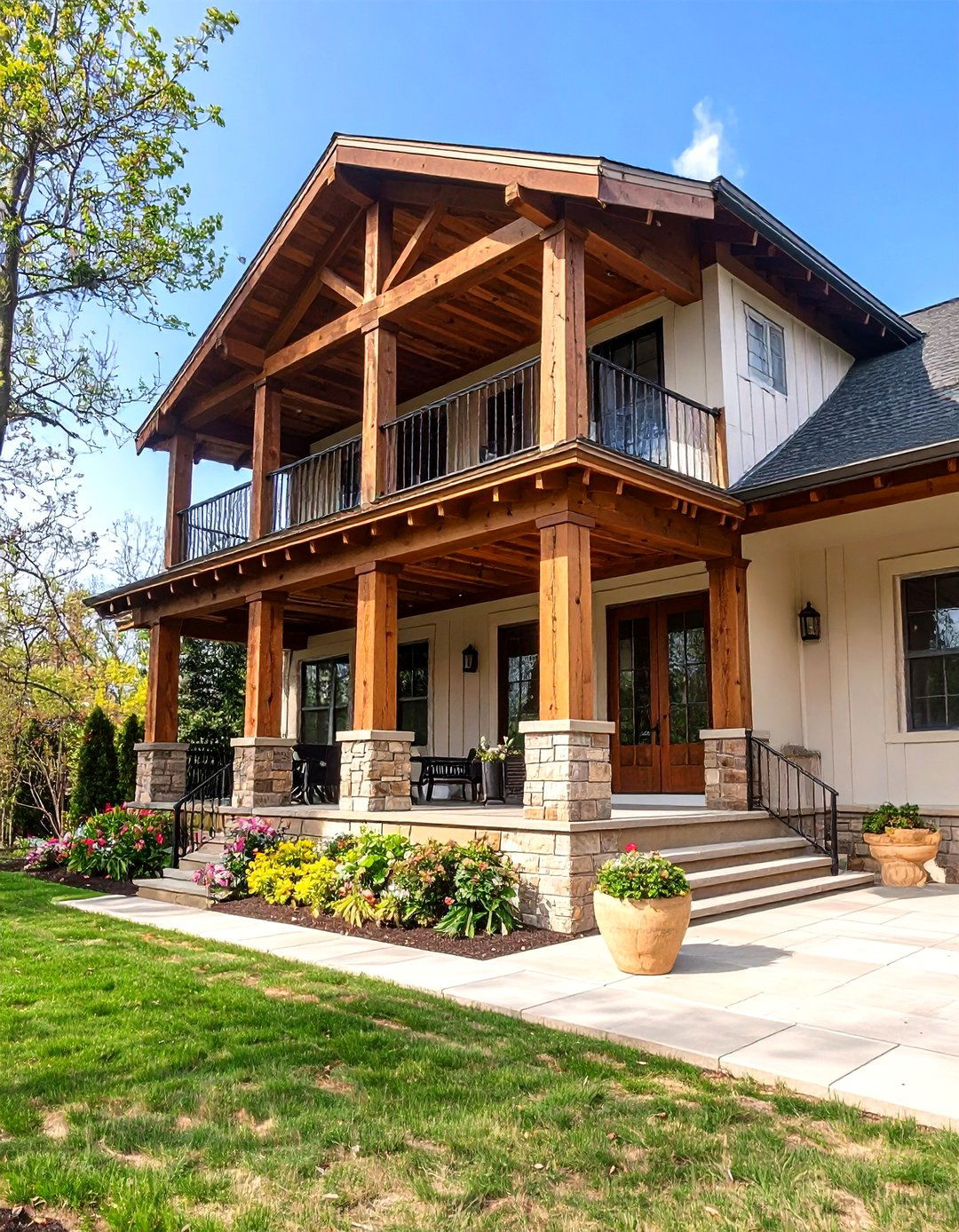
For those craving vernacular warmth, a full-width porch framed in chunky reclaimed posts anchors a black farmhouse within its landscape. Natural checking and knots stand out dramatically against the dark backdrop, proving rustic textures need not feel old-fashioned. Tongue-and-groove cedar ceiling boards and cable railings keep the silhouette light, while wide steps invite summer gatherings. Installing the frame on helical piers minimizes excavation and protects tree roots—an ecological advantage on established lots. Clear-coat the posts annually for three years to counter uneven sun exposure; after stabilization, maintenance intervals lengthen.
7. Wood-Wrapped Window Trim Against Black Walls
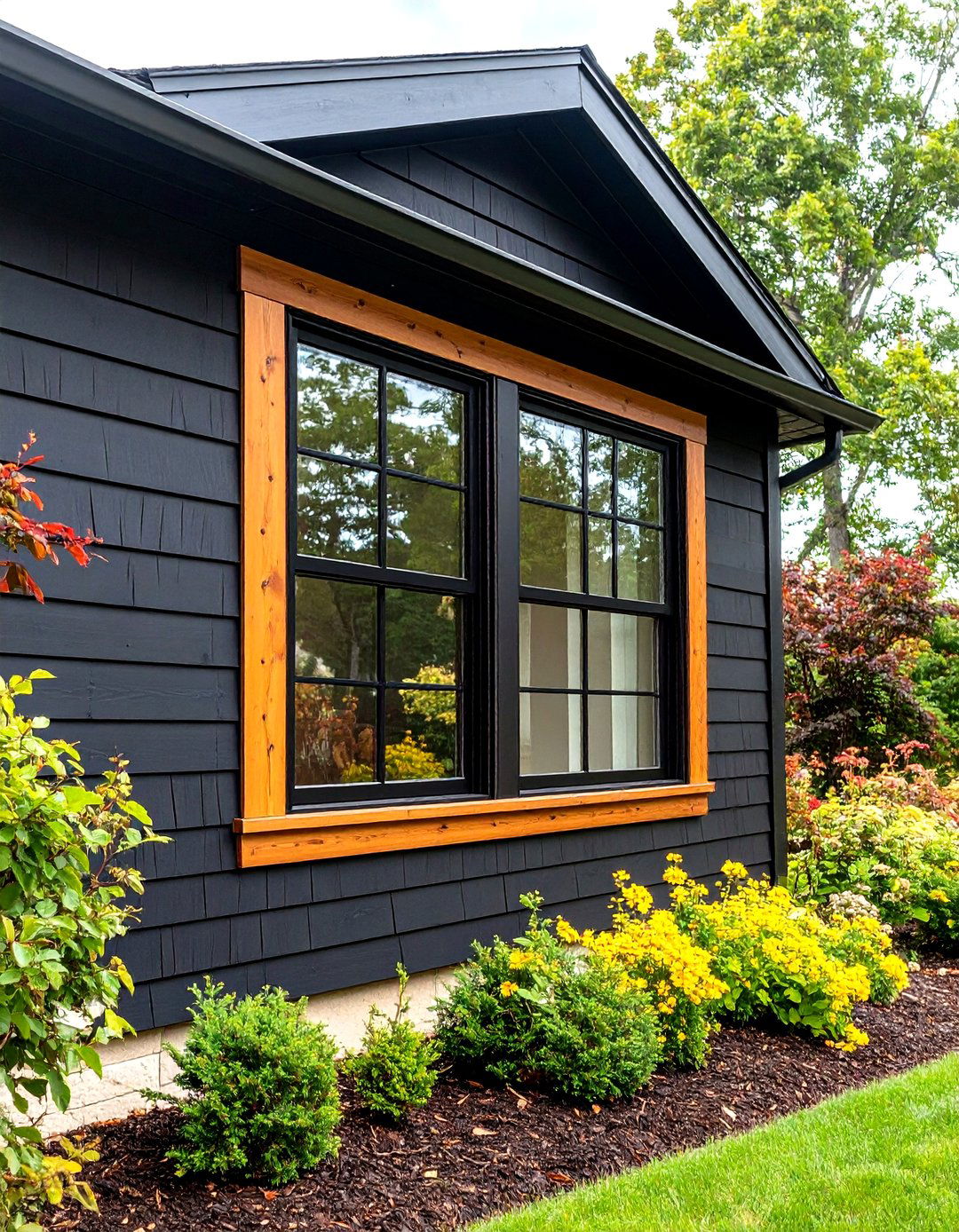
Black walls make glass disappear; framing that void with two-inch natural wood trim re-introduces definition and highlights sightlines. Choose decay-resistant cypress or cedar, back-prime all faces, and mount on spacer blocks so air circulates behind. Slightly wider head casings than jambs emphasize horizontality and prevent rain streaks. Mitre inside corners and bed them in flexible sealant to accommodate movement without cracking dark paint. Finish the trim in a neutral semi-transparent stain that complements both black surfaces and surrounding greenery. Pre-cut drip caps speed installation and extend service life.
8. Statement Wooden Garage Doors on a Black Home
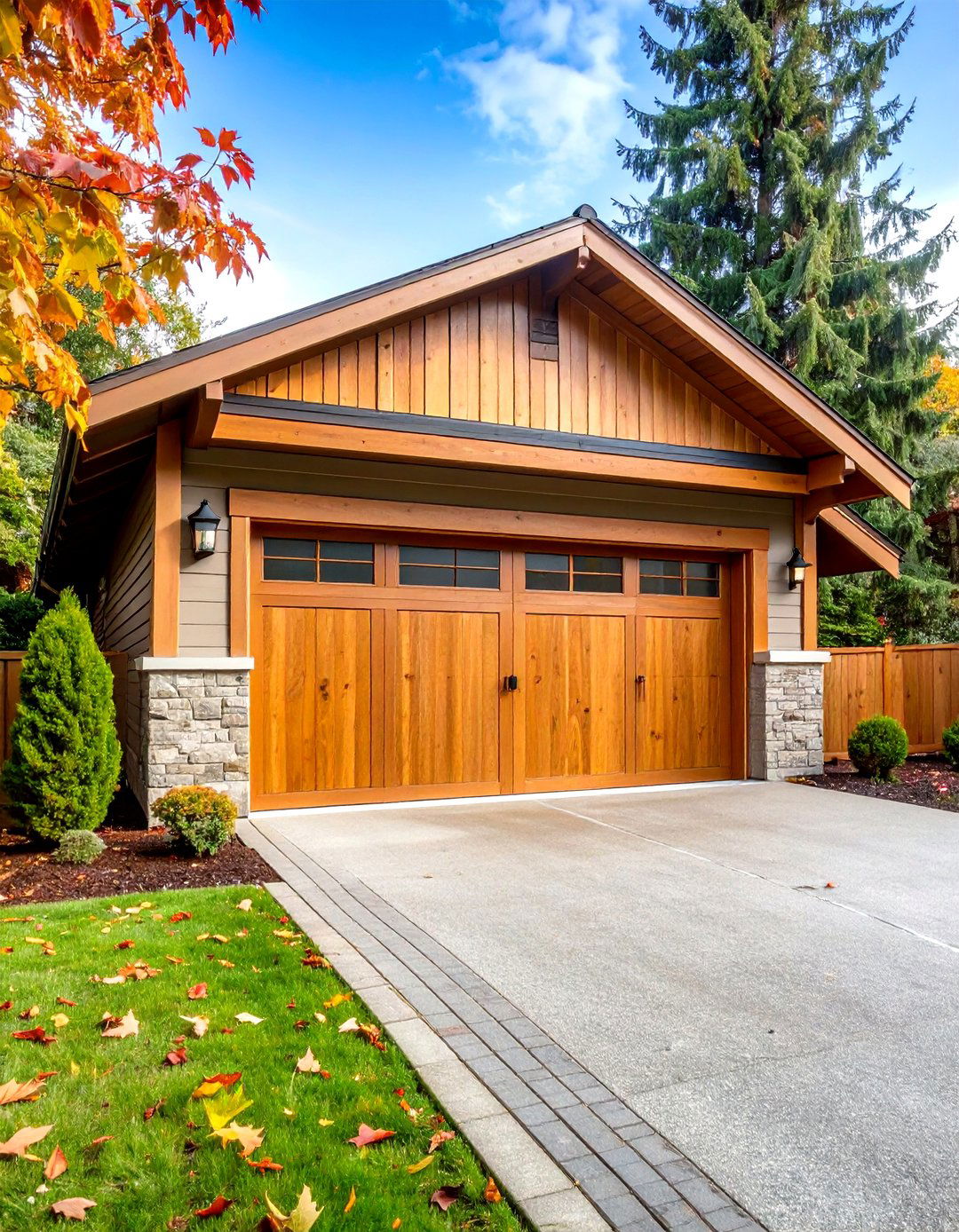
Replacing stamped-steel panels with real vertical-grain cedar or hemlock doors transforms a black house’s street face from utilitarian to bespoke. Flush designs keep the composition modern, while raised-slat patterns add subtle relief. Factory-insulated wood-clad doors achieve competitive R-values yet weigh less, reducing stress on openers. Specify hidden tracks so daylight cannot peek around panel edges and undermine the bold silhouette. Stain the doors two tones lighter than adjacent siding to keep them focal without visual shouting. Annual wash-downs and a clear top-coat ward off road-salt residue and UV fading.
9. Cedar Decks and Glass Balconies Complementing Black Siding
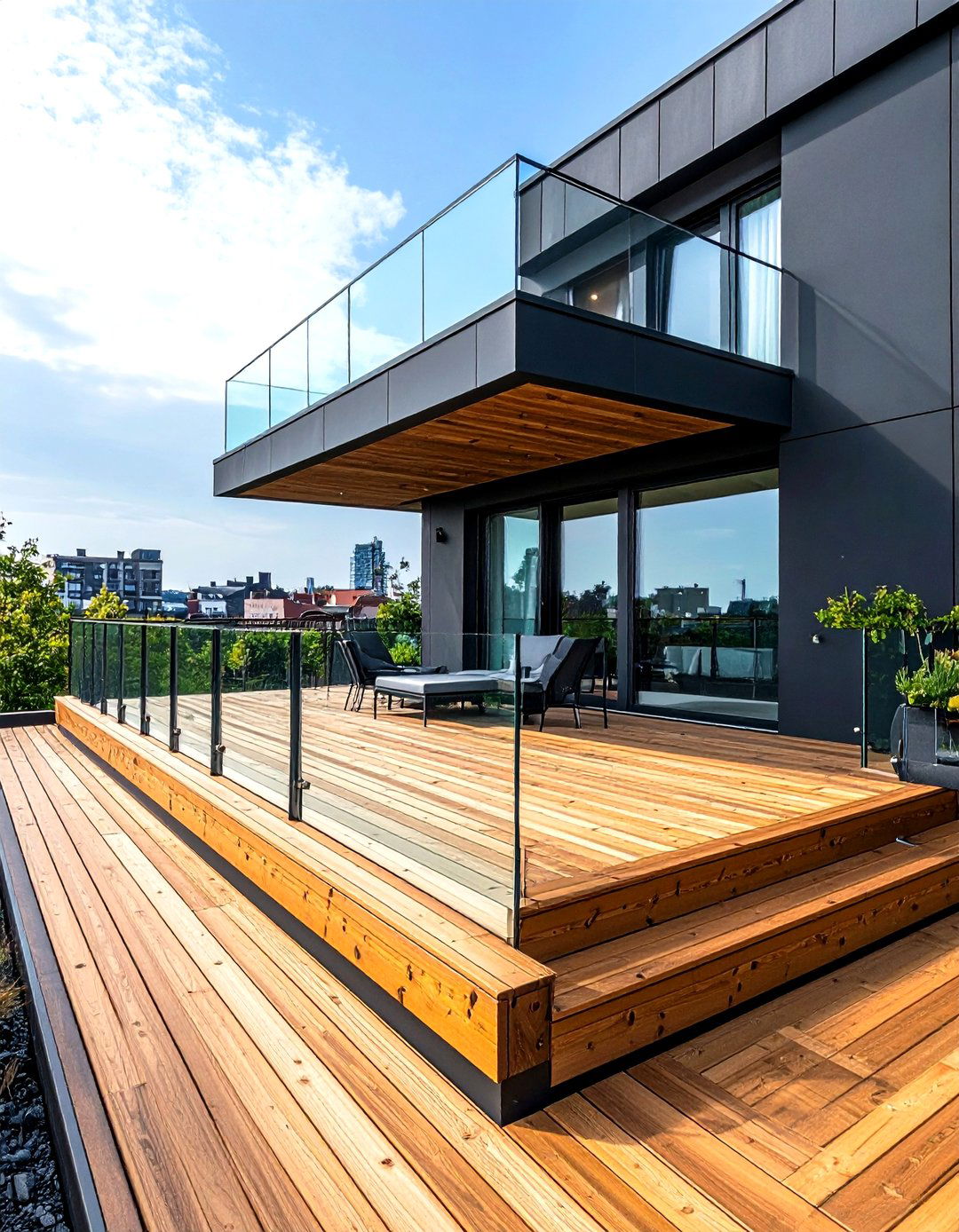
Extending living space outward with a cedar deck—or upward with a cantilevered glass-railed balcony—adds human-scale planes that contrast the monolithic feel of black walls. Pre-grooved hidden-fastener boards keep surfaces free of screw heads and preserve crisp lines. Timber flooring paired with frameless glass rails maintains long views while bouncing warm light onto interior ceilings. Chamfer deck edges 45° where they meet the house to shed water and visually lighten the mass. Clean with oxygenated bleach and re-oil every two years on traffic paths to preserve oils and color.
10. Floating Wood-Slat Privacy Screens for Black Houses
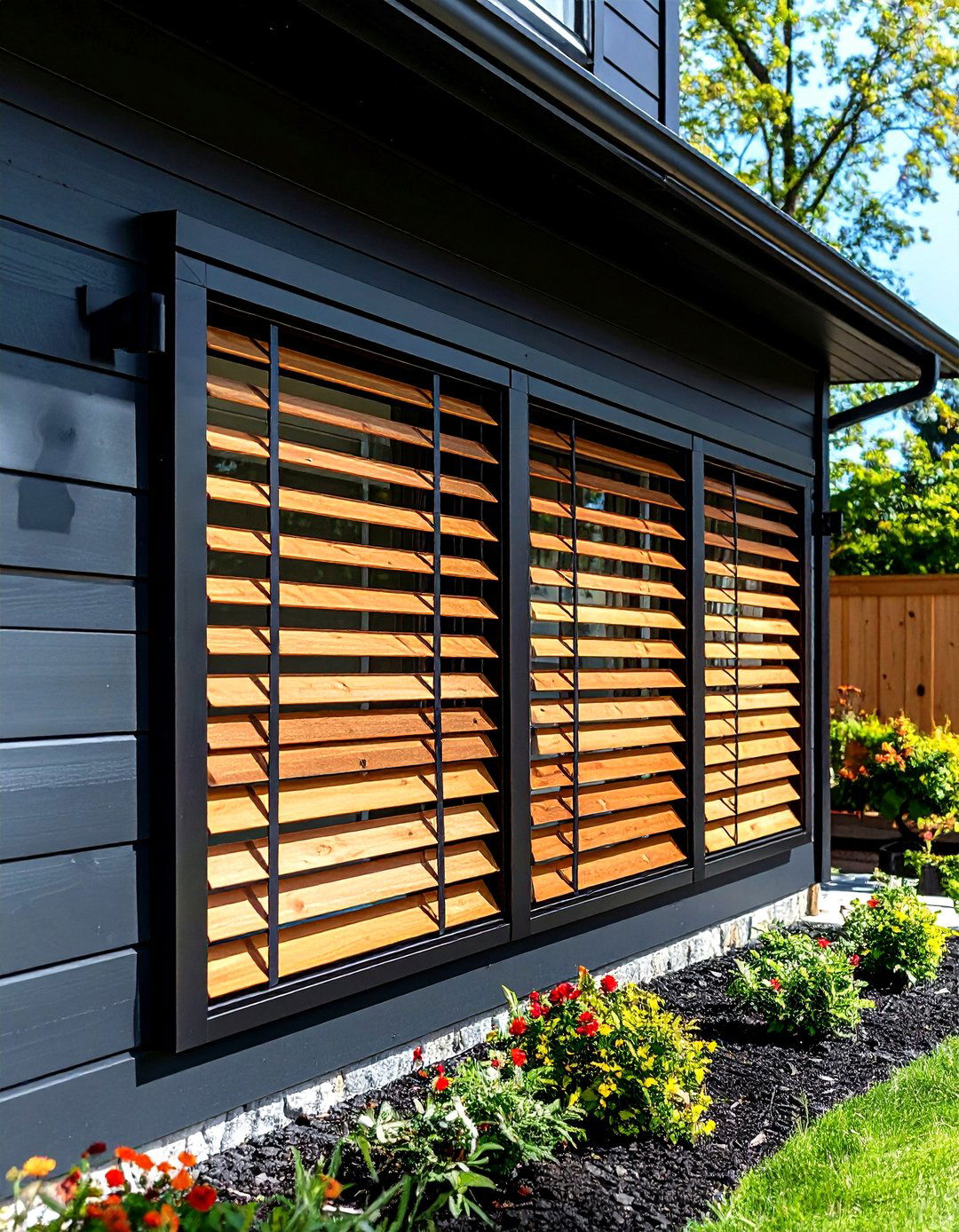
Screens built from two-by-two cedar slats set two inches off the black façade create layered depth, hide utility meters, and shape outdoor rooms without full fences. Black powder-coated steel brackets cantilever the frame, letting sunlight paint striped shadows across siding. Alternate 1½-inch and ½-inch gaps for rhythmic patterning while meeting fall-protection codes near windows. Through-bolt into structural sheathing to prevent sagging, and oil only the outward-facing surfaces so backs can patinate naturally and breathe.
11. Show-Stopping Solid Wood Front Door in a Black Entry
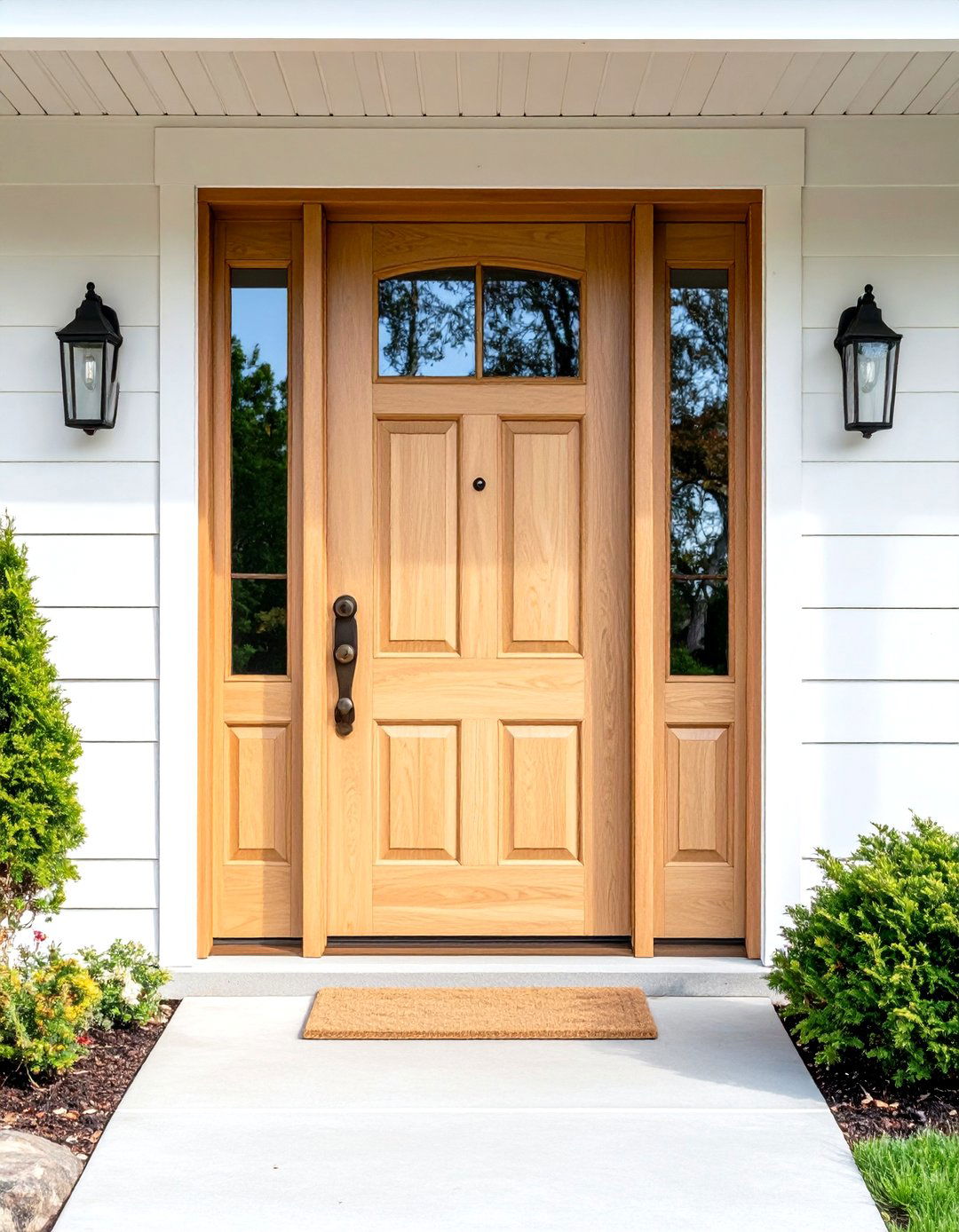
If you pick only one wood accent, make it a massy, slab-style front door in mahogany or white oak. The rich tone commands attention amid dark cladding and signals craftsmanship before visitors even knock. Use a clear, furniture-grade finish to showcase medullary rays, and specify ball-bearing hinges rated for heavy panels. A recessed bronze pull keeps sightlines uncluttered, while a low-iron glass transom introduces glare-free daylight. Back-seal jamb gaps with compressible gaskets to prevent thermal bridging that could cause condensation streaks on black siding in humid climates.
12. Living Cedar Trellis Climbing the Black Exterior
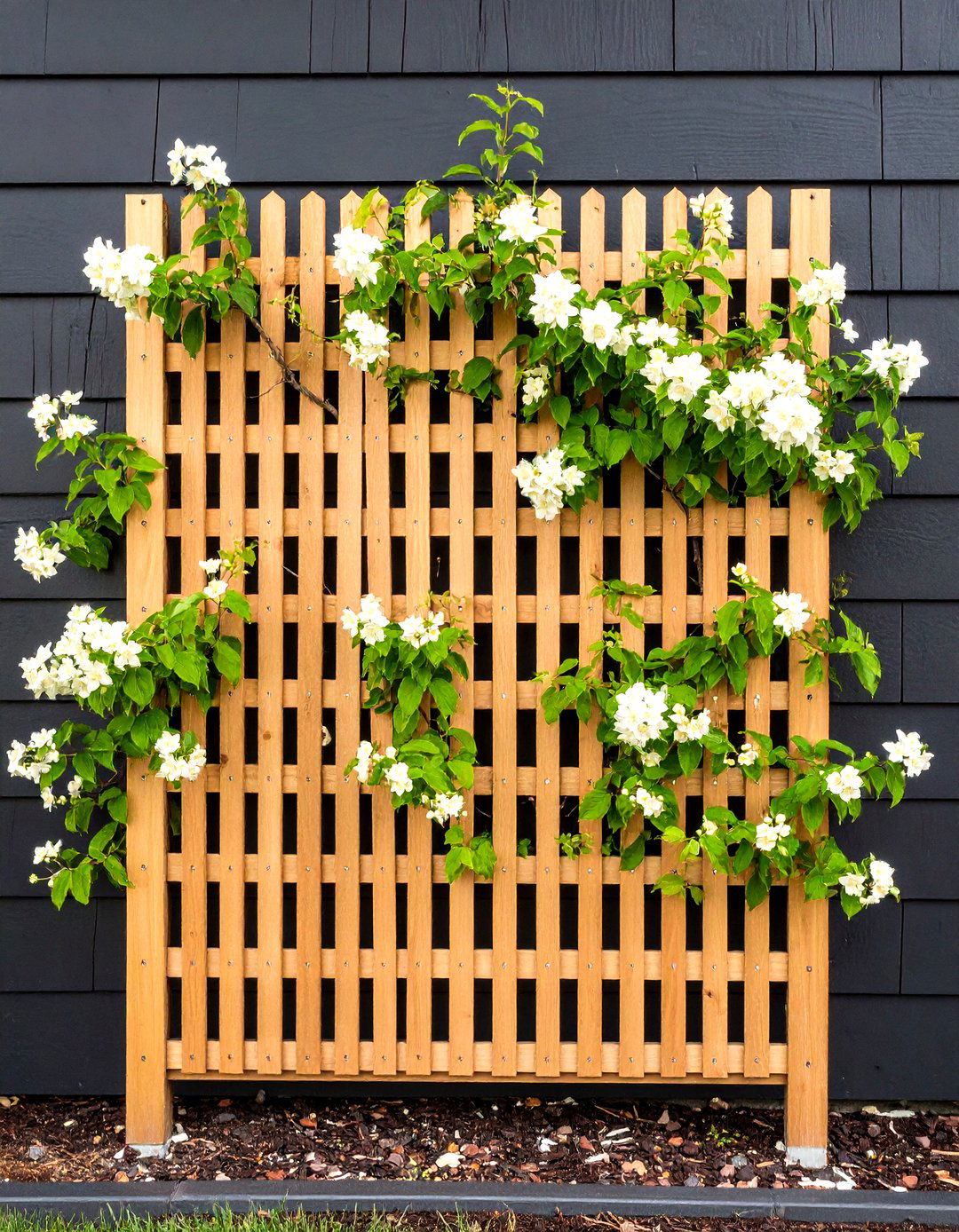
A freestanding cedar trellis anchored six inches from the black wall creates a micro-climate where vines can scramble without trapping moisture against siding. As greenery thickens, its dappled shade cools interiors, offsetting heat absorbed by dark paint. Choose star jasmine or evergreen clematis for year-round foliage. Build the grid from 1 × 2 battens using half-lap joints; the open weave lets maintenance crews inspect walls. Stainless screws and concealed lag shields prevent rust stains. Annual pruning preserves airflow and aesthetics.
13. Exposed Wood Beams Under Black Gables
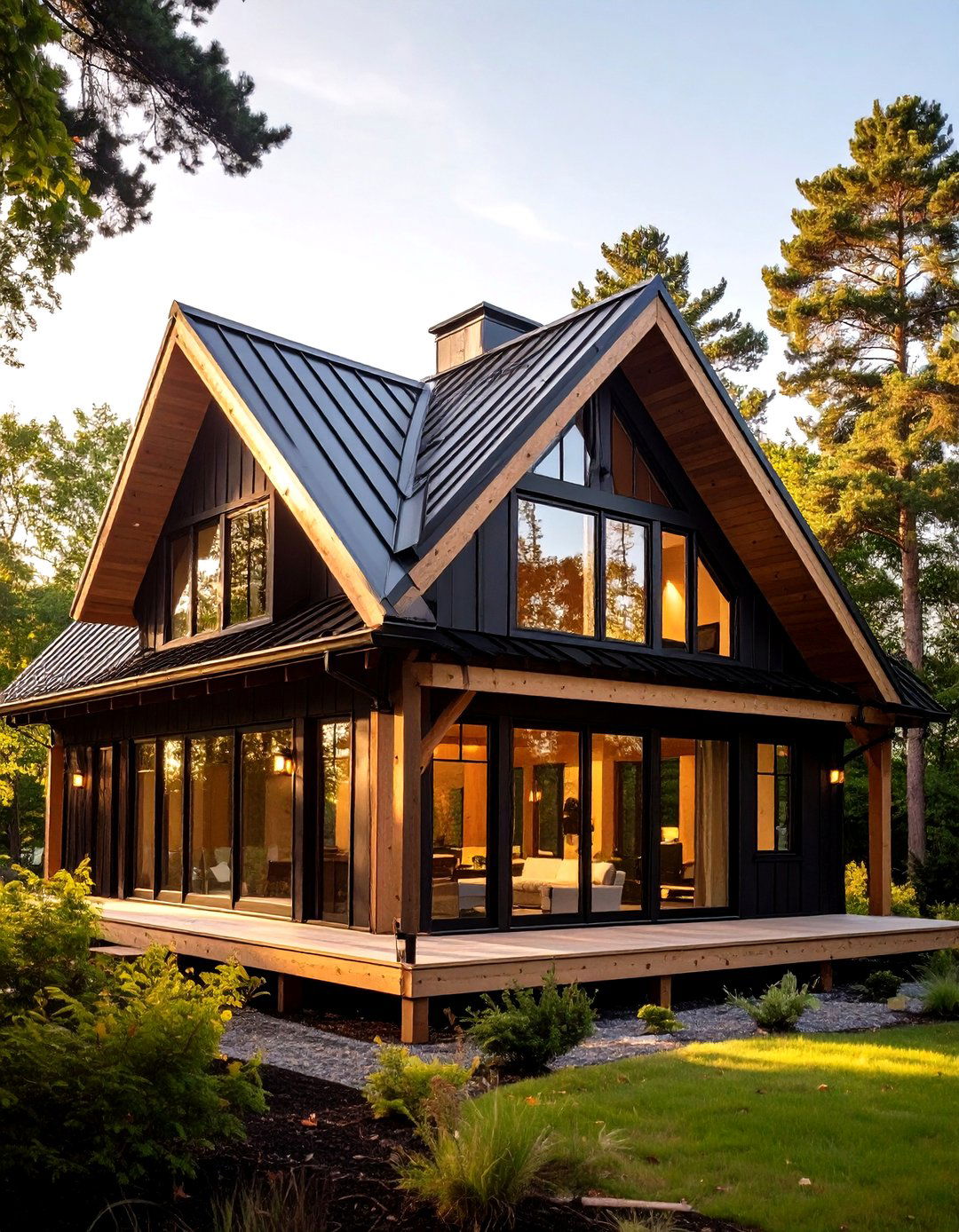
Lofty gables painted black emphasize roof geometry; exposing structural glulam or reclaimed beams beneath them adds authenticity. Chamfer beam ends and oil with satin finish so golden flecks reflect light and break up dark voids. Indoors, the same members can span cathedral ceilings, visually tying spaces to the exterior frame. Concealed steel knife plates carry loads while keeping timber surfaces clear. Because beams catch rain splash-back, seal end-grain and elevate on stainless stand-off pins to prevent wicking. Seasonal inspections ensure fasteners remain tight.
14. Thermally Modified Ash Highlights for Black Siding
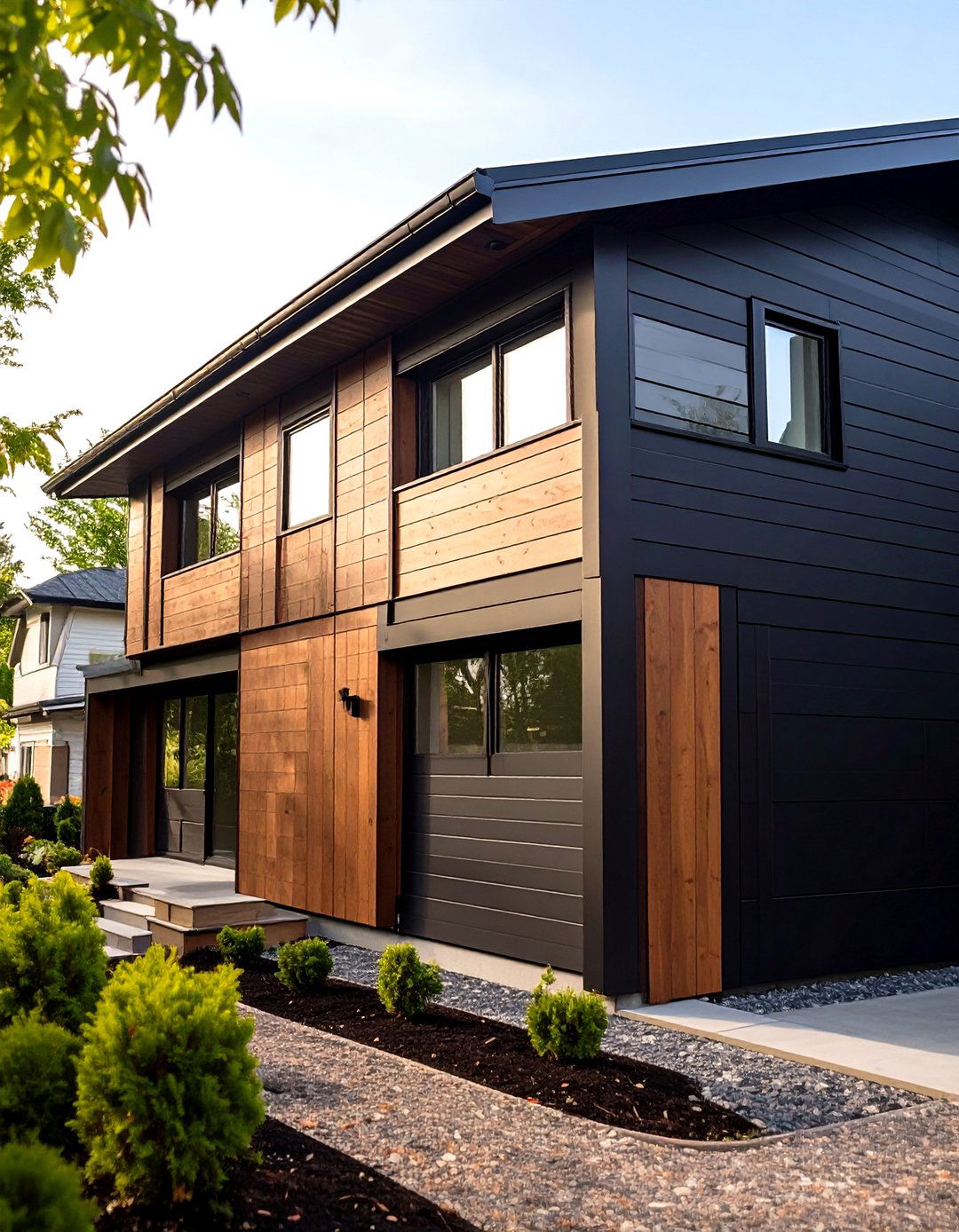
Thermally modified ash offers the color stability of exotic hardwoods without ecological cost. Heat and steam drive out sugars, creating rot resistance on par with cedar while darkening boards to a mocha that sits comfortably against matte black walls. The chemical-free process means off-cuts can be composted. Use the timber for accent rain-screens on high-splash zones where pine would deteriorate quickly. Pre-drill to avoid splitting the brittle fibers, and finish with a low-gloss penetrating oil made for modified wood to prevent surface checking.
15. DIY Cedar Shake Accent Walls on Black Elevations
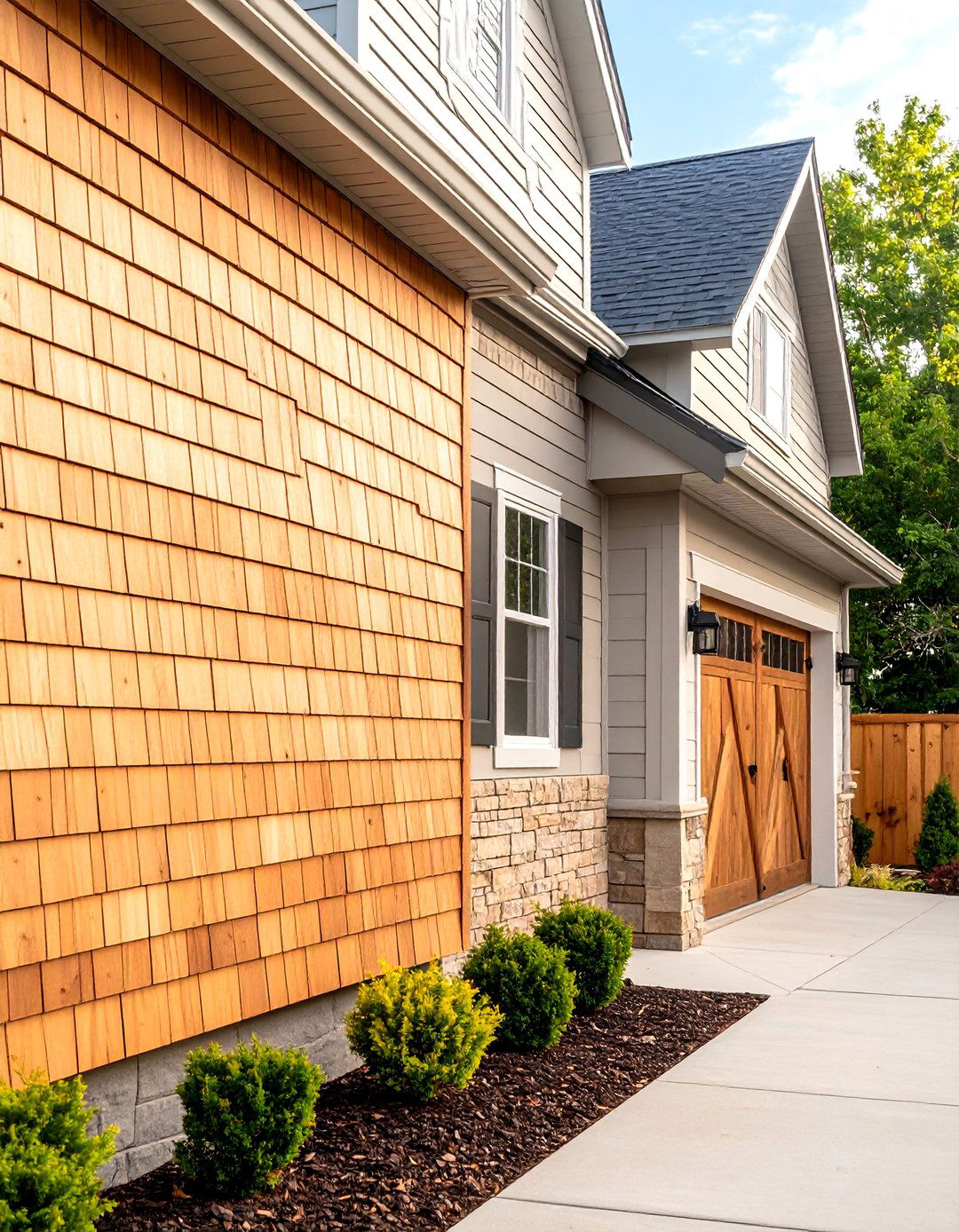
Take budget control by installing a cedar-shake accent on one elevation—such as the garage gable—against sleek black siding. Staggered rows prevent a too-tidy look, and pre-finished shakes save ladder time. Hand-nail to avoid over-driving fragile edges, leaving a ⅛-inch gap for expansion. Spray the shakes with a breathable water-repellent rather than a film-forming stain so moisture escapes and cupping is minimized. Keep the shake field narrow so it reads as craft detail, not second cladding, preserving minimalist intent while adding historic texture. Spot-prime any knot pockets before hanging.
16. Stone Base Courses Meeting Wood on Black Walls
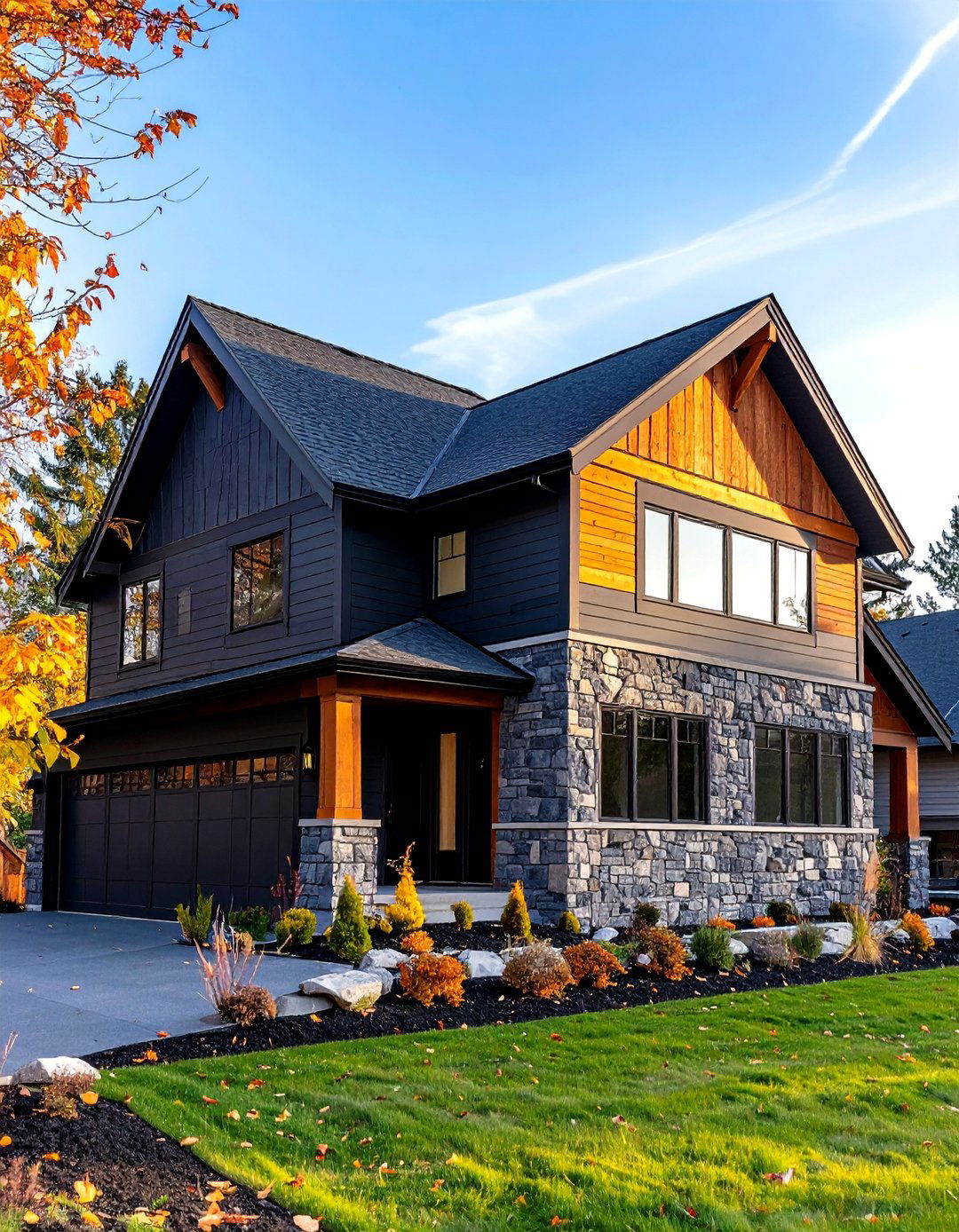
Pairing a stacked-stone wainscot with cedar accents above black cladding grounds the house visually and adds tactile contrast. The weighty base resists splashes and plow debris, allowing valuable wood to start higher where it weathers slower. Step ledgers back an inch so capstones project slightly, throwing a protective drip over the junction. Run vertical cedar battens between stone returns to tie materials together. Keep mortar charcoal-tinted so the transition feels seamless with dark paint. Seal stone annually to prevent efflorescence stains.
17. Carry Timber Inside From Your Black Exterior
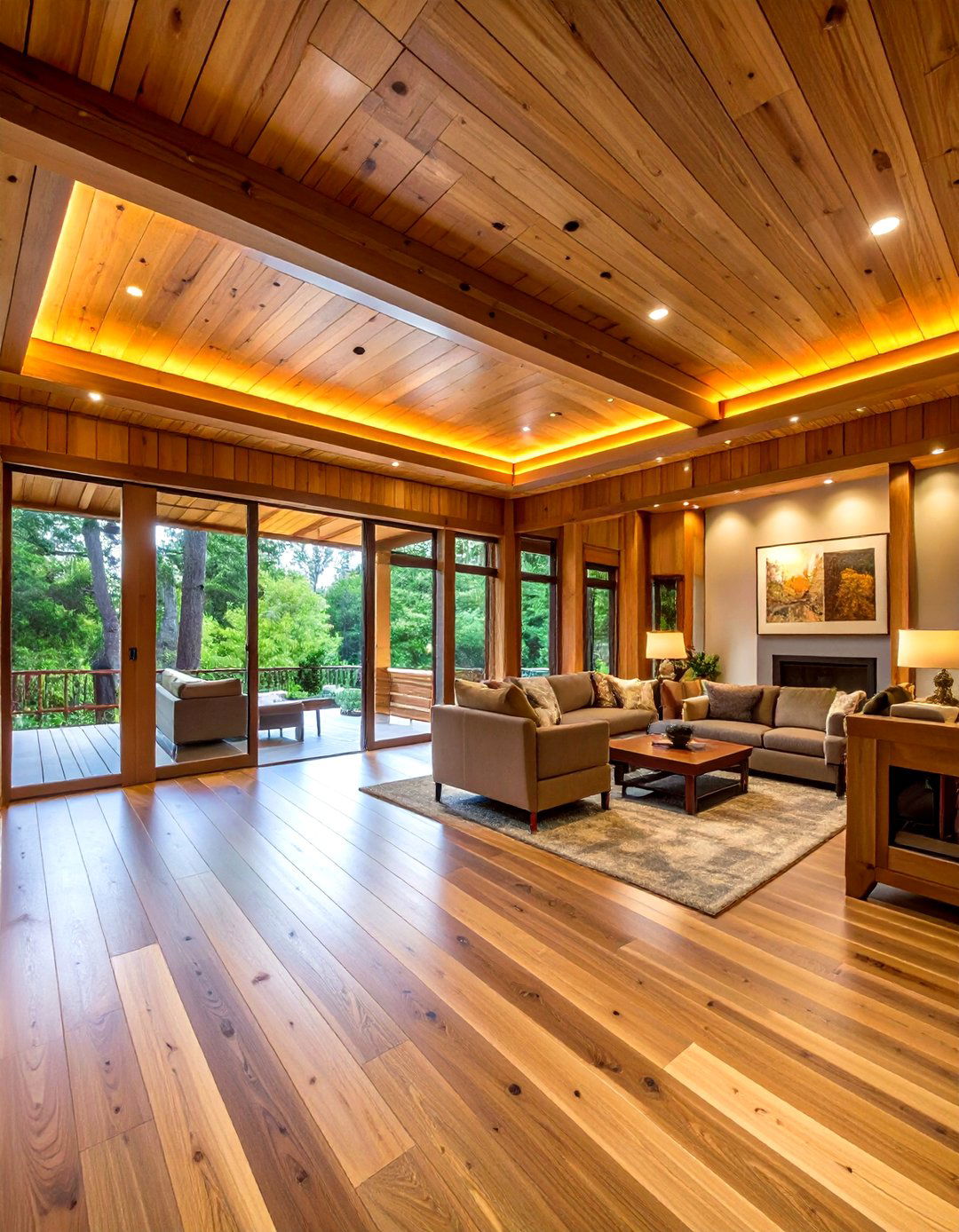
Continuing the same cedar boards through a vestibule ceiling or along a feature wall ties exterior and interior, making smaller black houses feel expansive. Concealed tongue-and-groove clips leave fixings invisible. Run electrical chases before installation so sconces or LED strips can wash the grain without surface conduits. A low-VOC water-based finish preserves indoor air quality while protecting wood from HVAC-driven humidity swings. Matching board widths at thresholds guides the eye outward, visually extending living areas. Daylight then reads as one continuous ribbon.
18. Overhangs Managing Heat on Black Houses
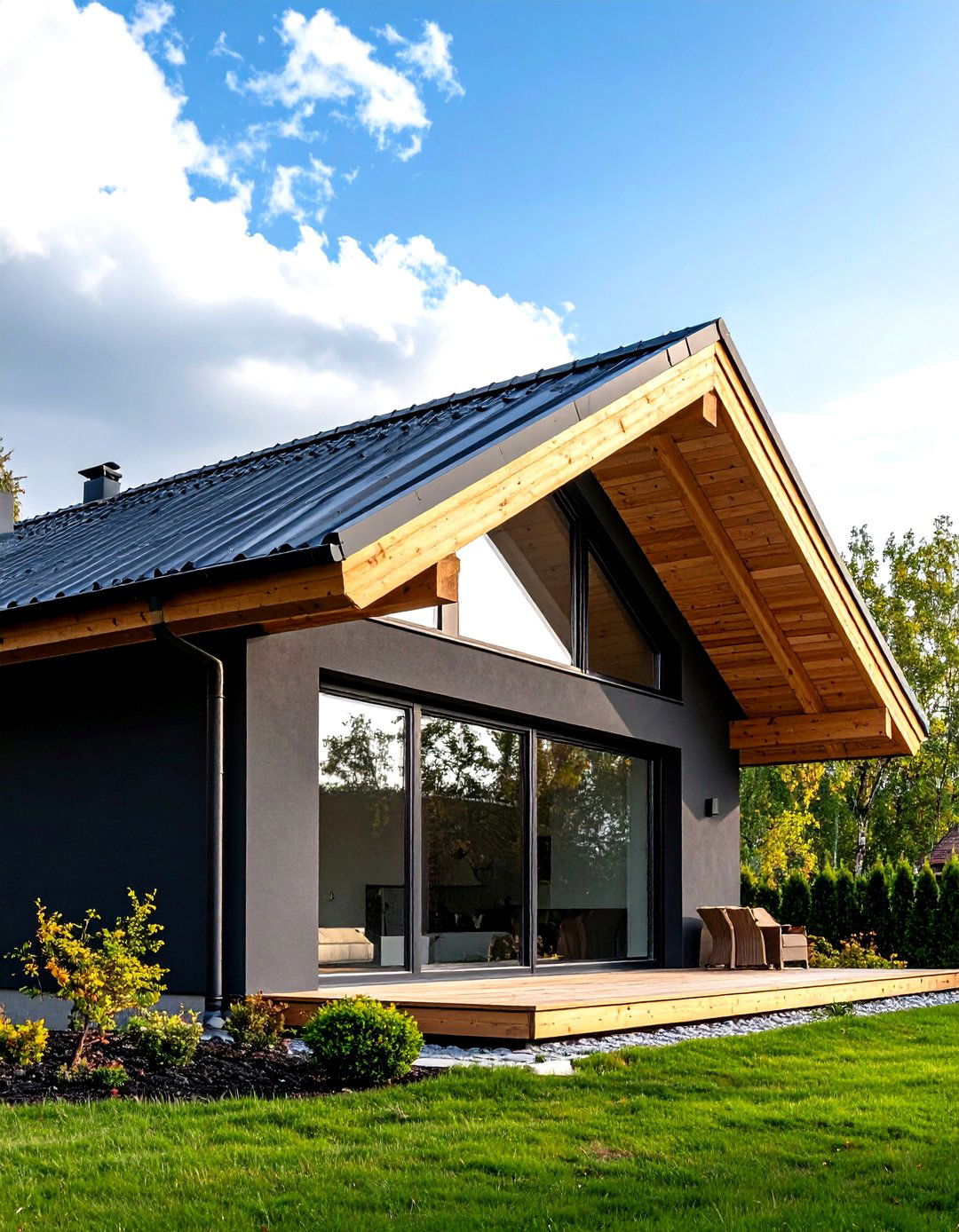
Dark paint can absorb up to ninety-five percent of solar radiation, raising wall temperatures by over fifteen °C. Generous wood overhangs tame peak gain, protecting cladding and interiors. Size projections using the sun-angle method: depth equals half the distance from window head to sill to block high summer sun while welcoming winter rays. Light-toned soffit boards beneath overhangs bounce indirect light inside, reducing artificial-lighting needs. Cross-ventilated wood rain-screen battens further cool walls. Energy models predict up to ten-percent savings.
19. Maintenance Routines for Black Paint and Wood Accents
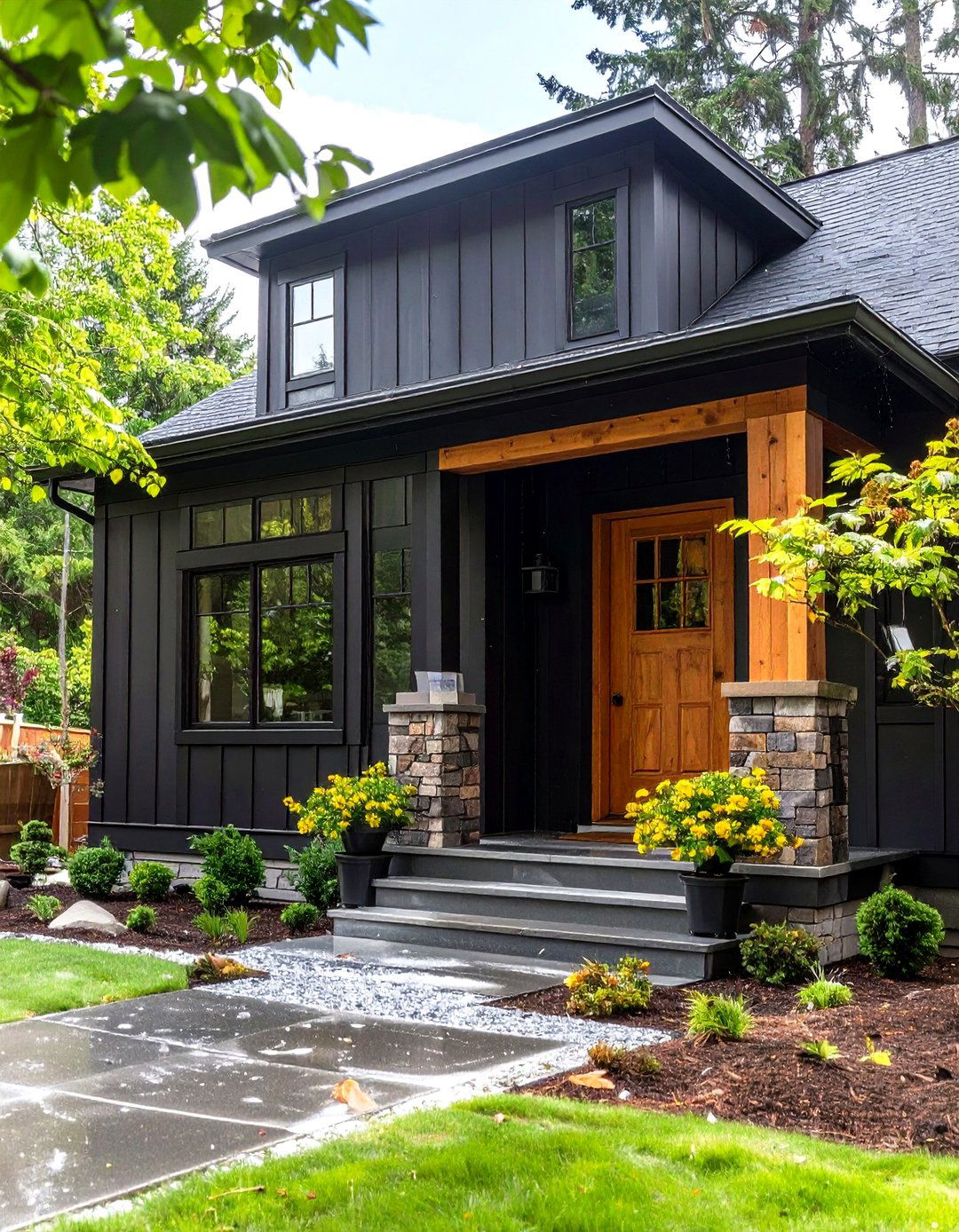
A black house with wood accents ages gracefully only when finishes are monitored. Dark paint shows chalking sooner than neutrals; plan biannual inspections and gentle detergent washes to remove pollen and salt. Touch up micro-cracks before UV exposure widens them. Expect to re-oil horizontal timber every two years and vertical faces every four, though shaded elevations may go longer. Keep gutters clear and vegetation trimmed fifteen cm away for airflow. Recording tasks in a simple spreadsheet helps future owners understand the routine. Use matte touch-up kits for seamless repairs.
20. Seasonal Stain Refresh to Revive Black-and-Wood Harmony
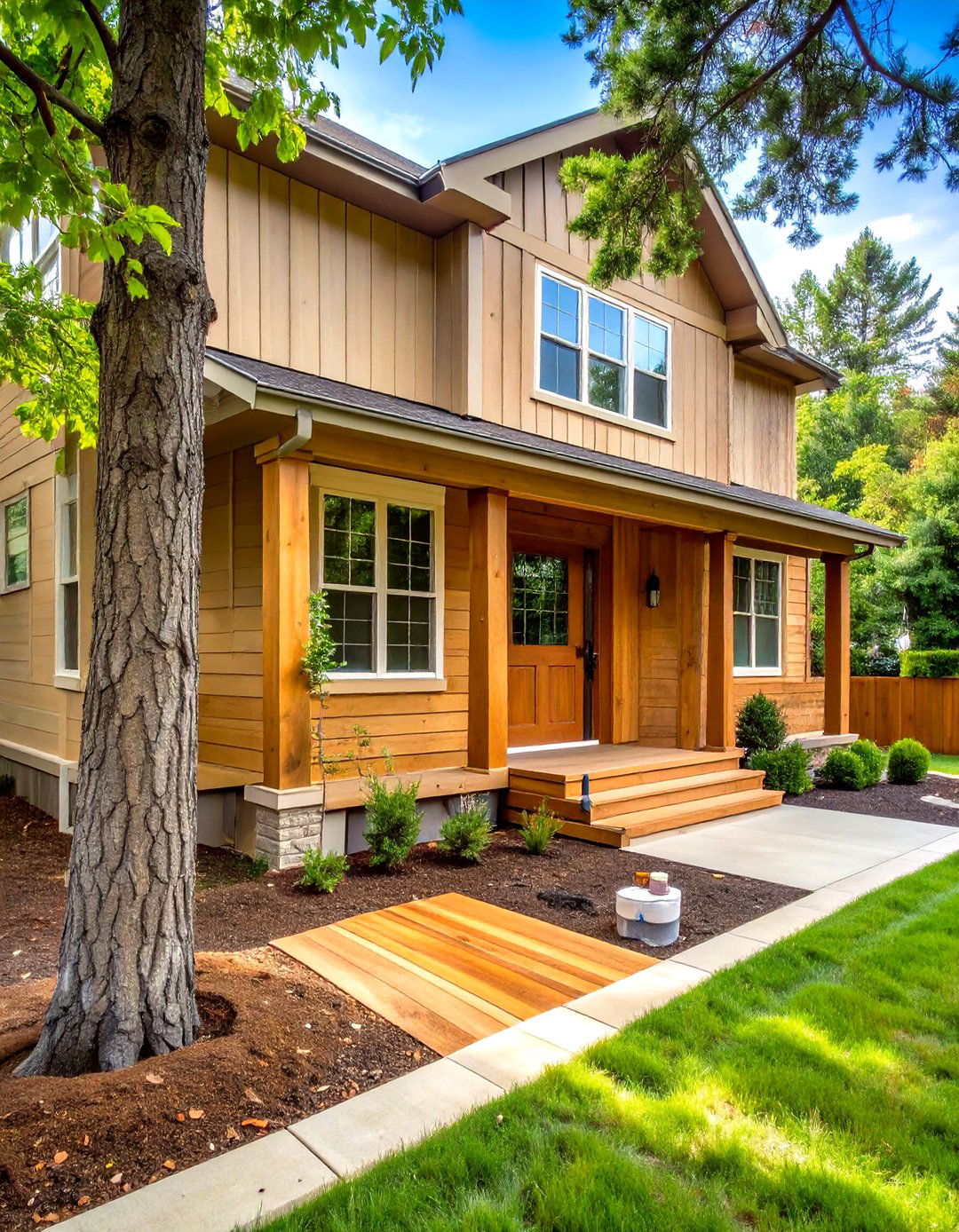
Finally, embrace the evolving relationship between black architecture and wood by refreshing horizontal accents with semi-transparent stain each spring. Start when overnight lows stay above ten °C for proper curing. Lightly sand with 120-grit to open fibers, then wipe with denatured alcohol before applying. Switching tones—honey to walnut, for instance—lets the exterior palette respond to new plantings or furniture without a full repaint. Record the batch number for easy reordering and maintain a wet edge to avoid lap marks. This ritual protects against moisture and UV while reconnecting owners to the tactile beauty of their timber features.
Conclusion:
Black houses with wood accents prove that minimal palettes can deliver maximum personality when handled with care. By orchestrating warm timber details—whether a cedar-clad entry, a charred Shou Sugi Ban wall, or a seasonally refreshed trellis—homeowners temper the dramatic silhouette, improve performance, and keep maintenance realistic. Thoughtful choices in species, finishes, and placement ensure each wooden element ages gracefully, while heat-managing overhangs and rain-screen strategies preserve the deep backdrop. Combine the ideas above, test them in sketches, and craft a black-and-wood exterior that feels bold yet welcoming for decades to come.


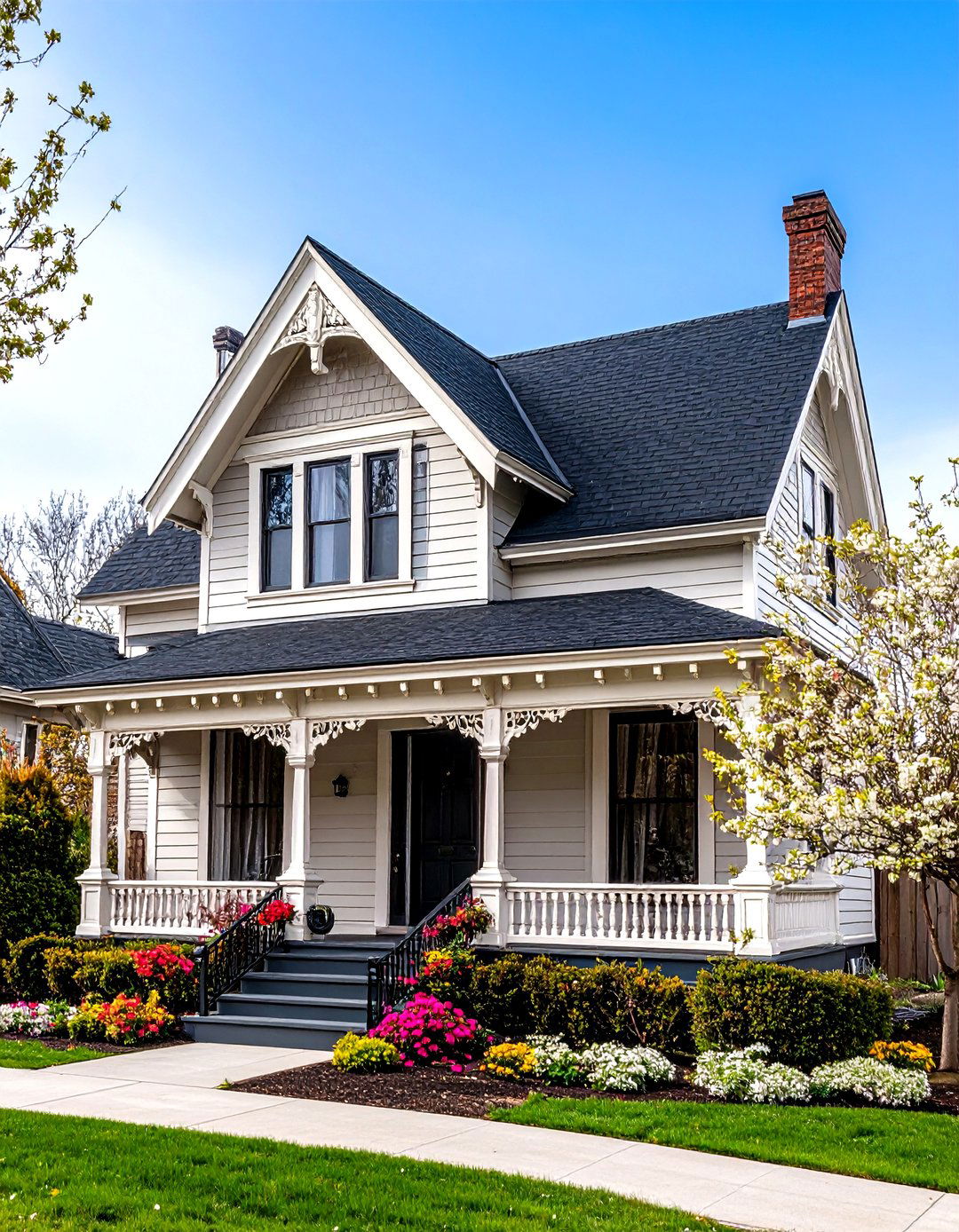
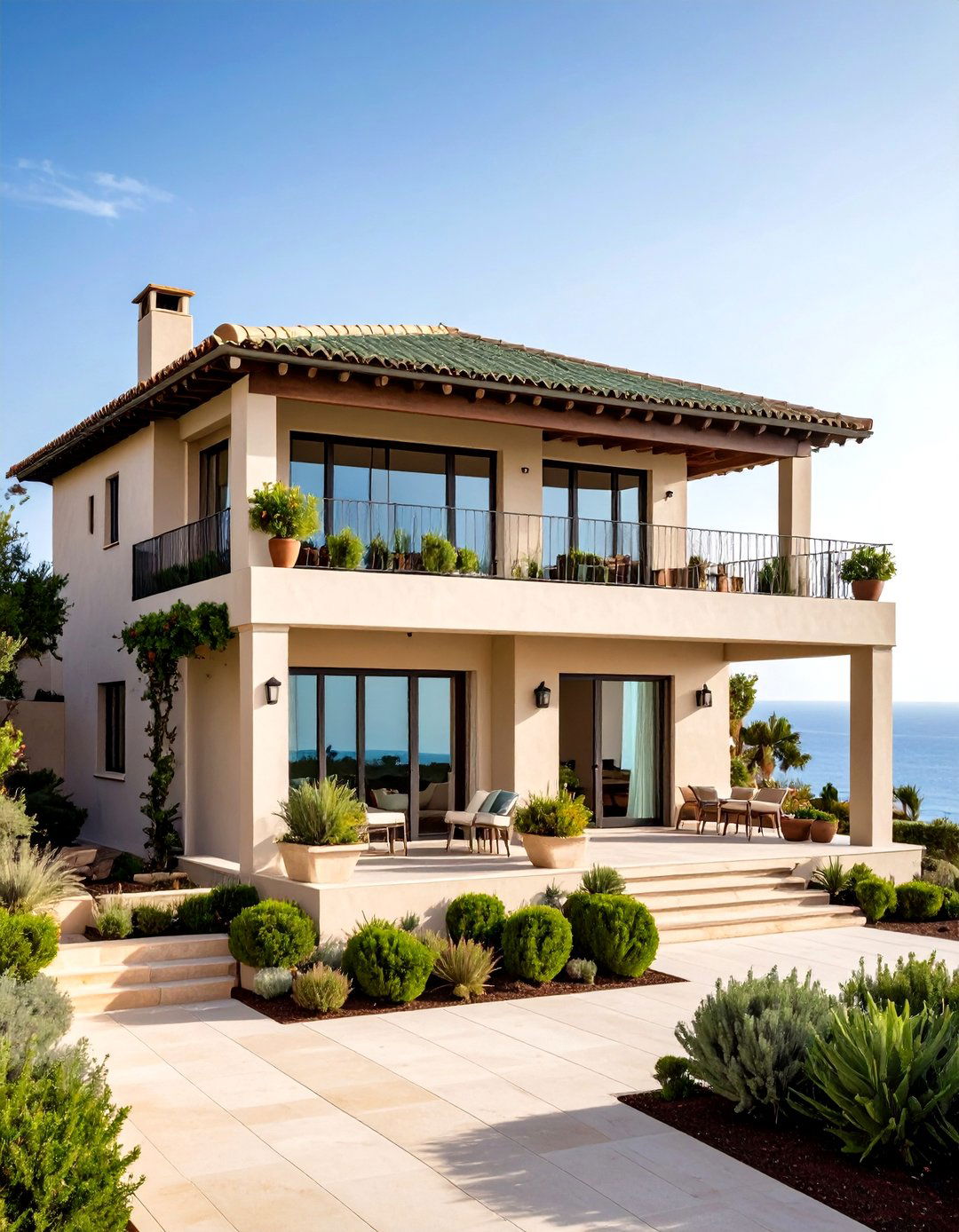
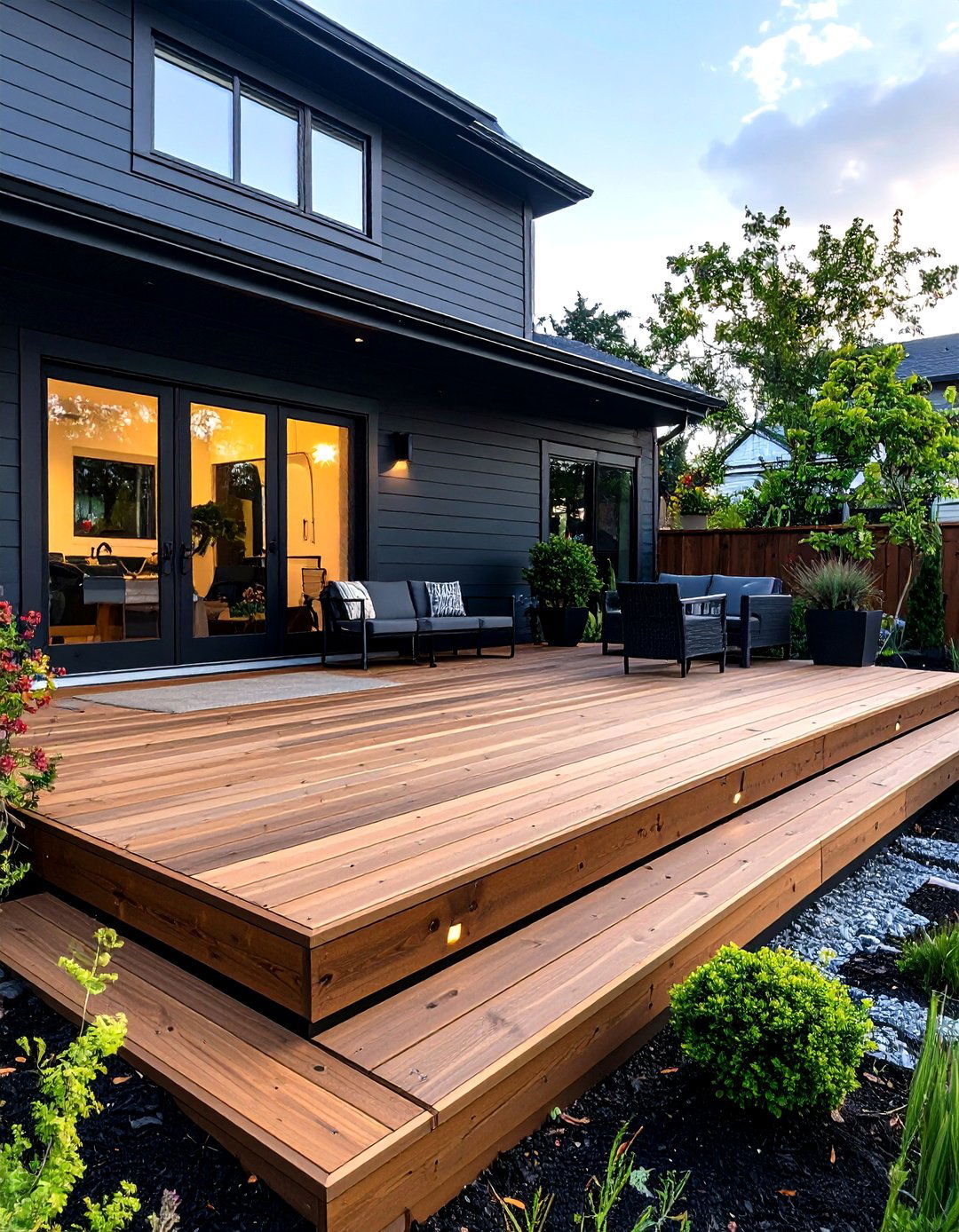
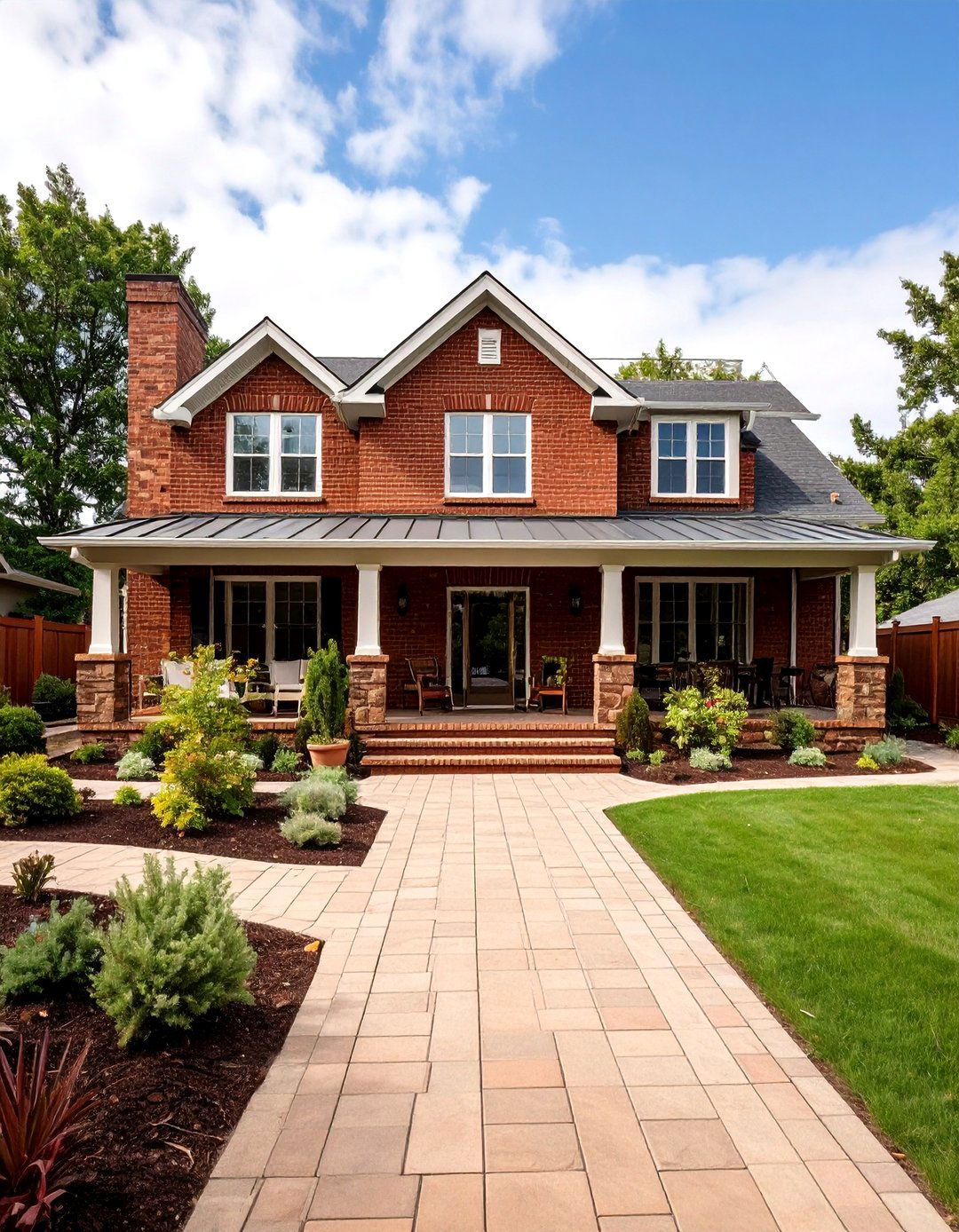
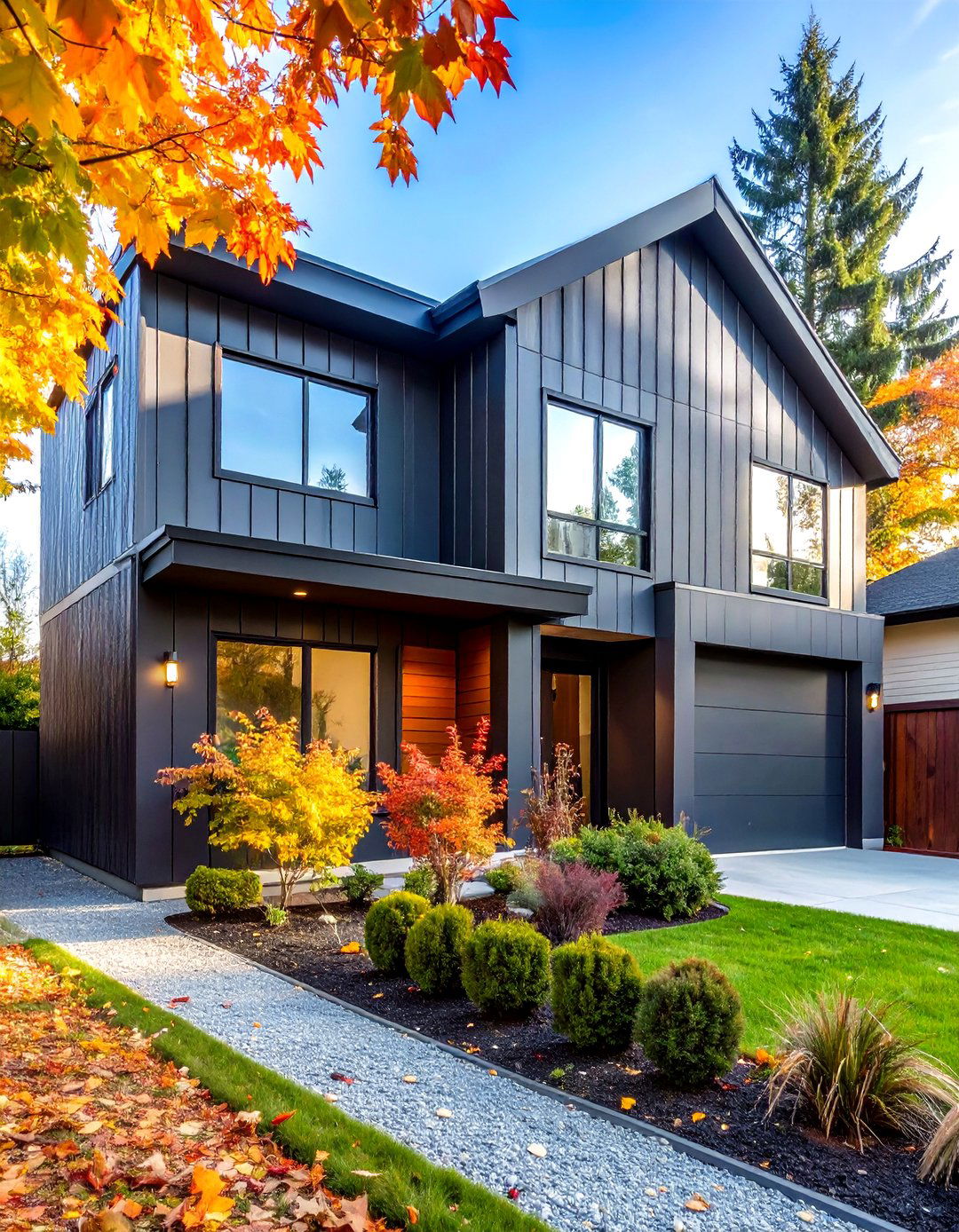
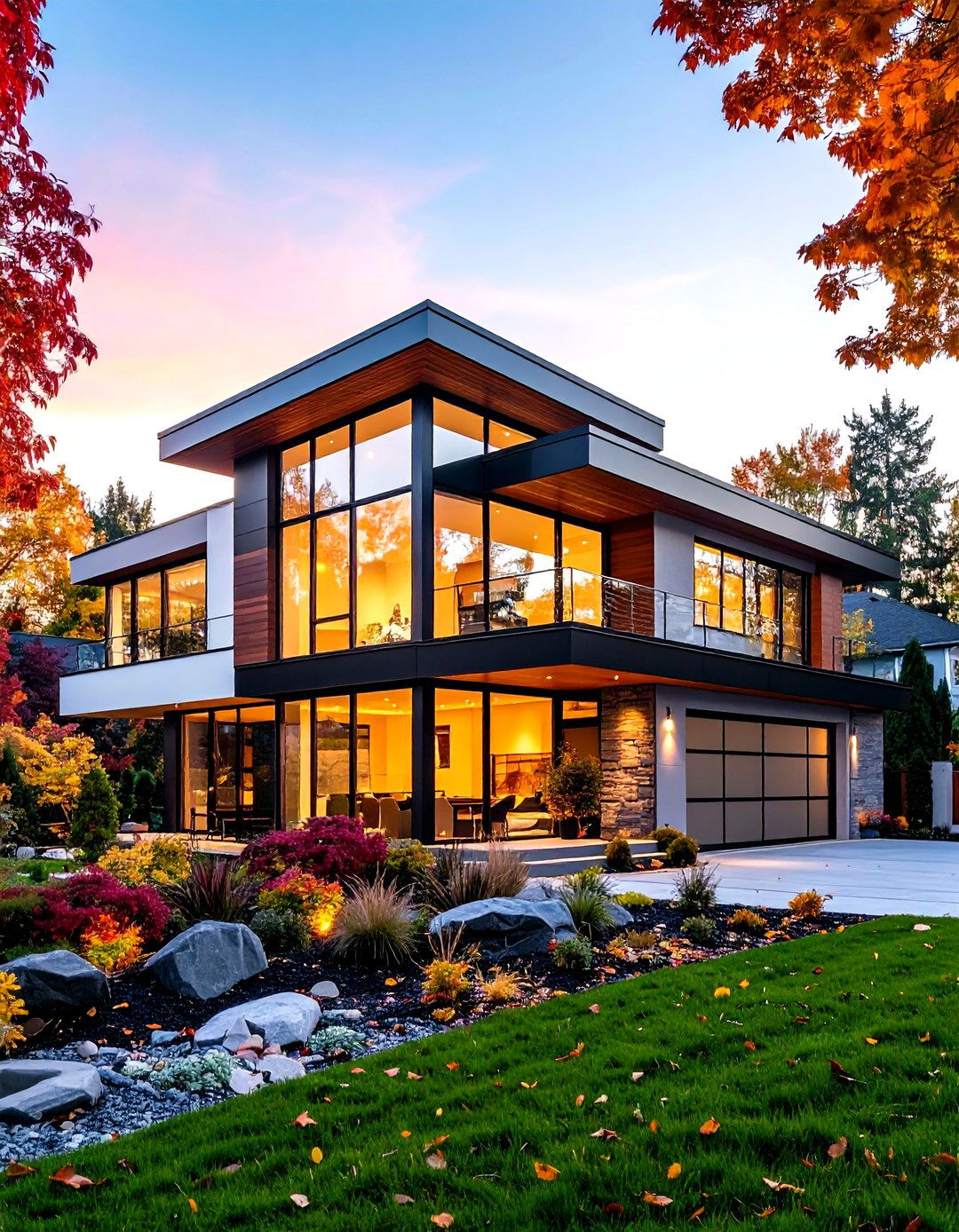
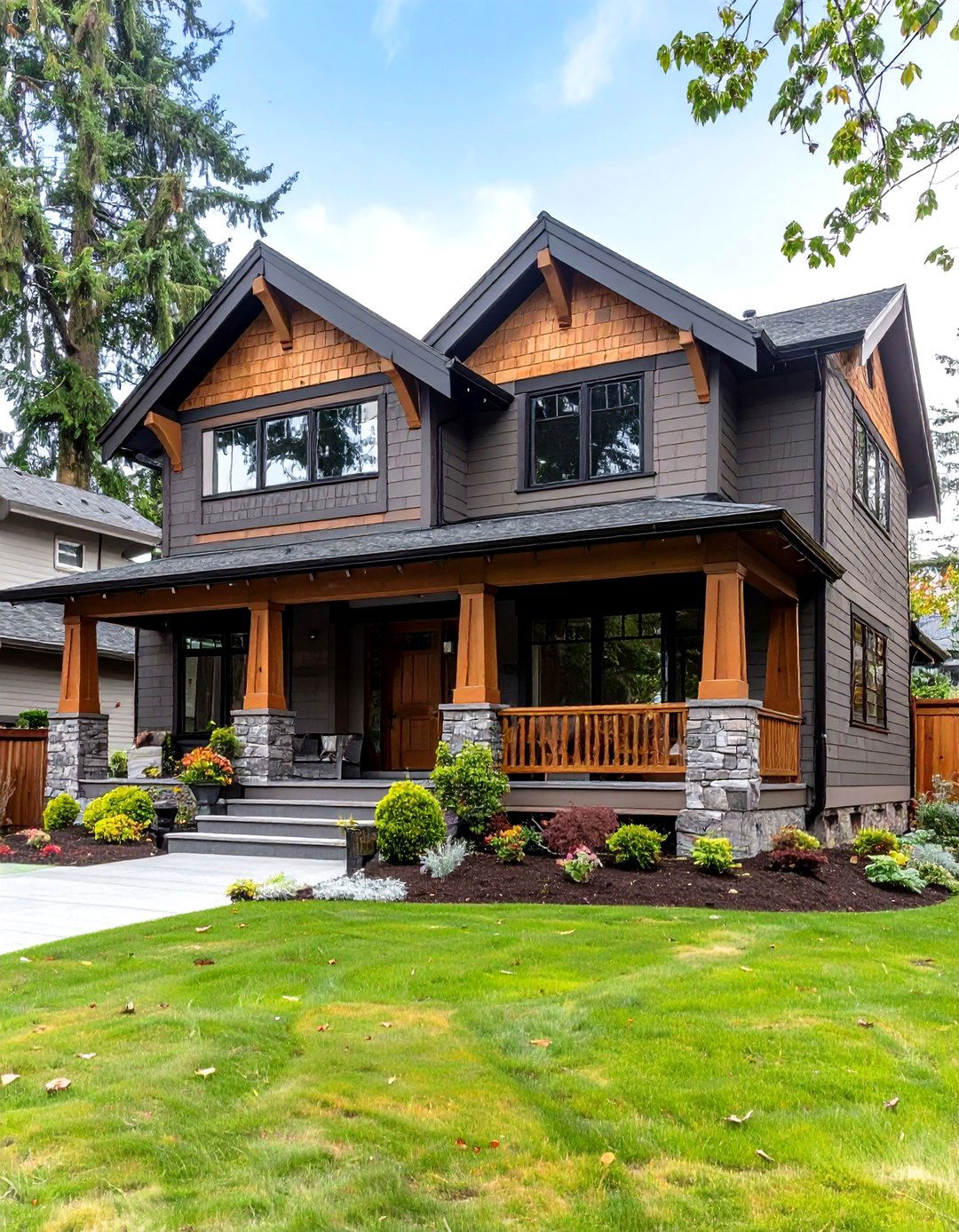
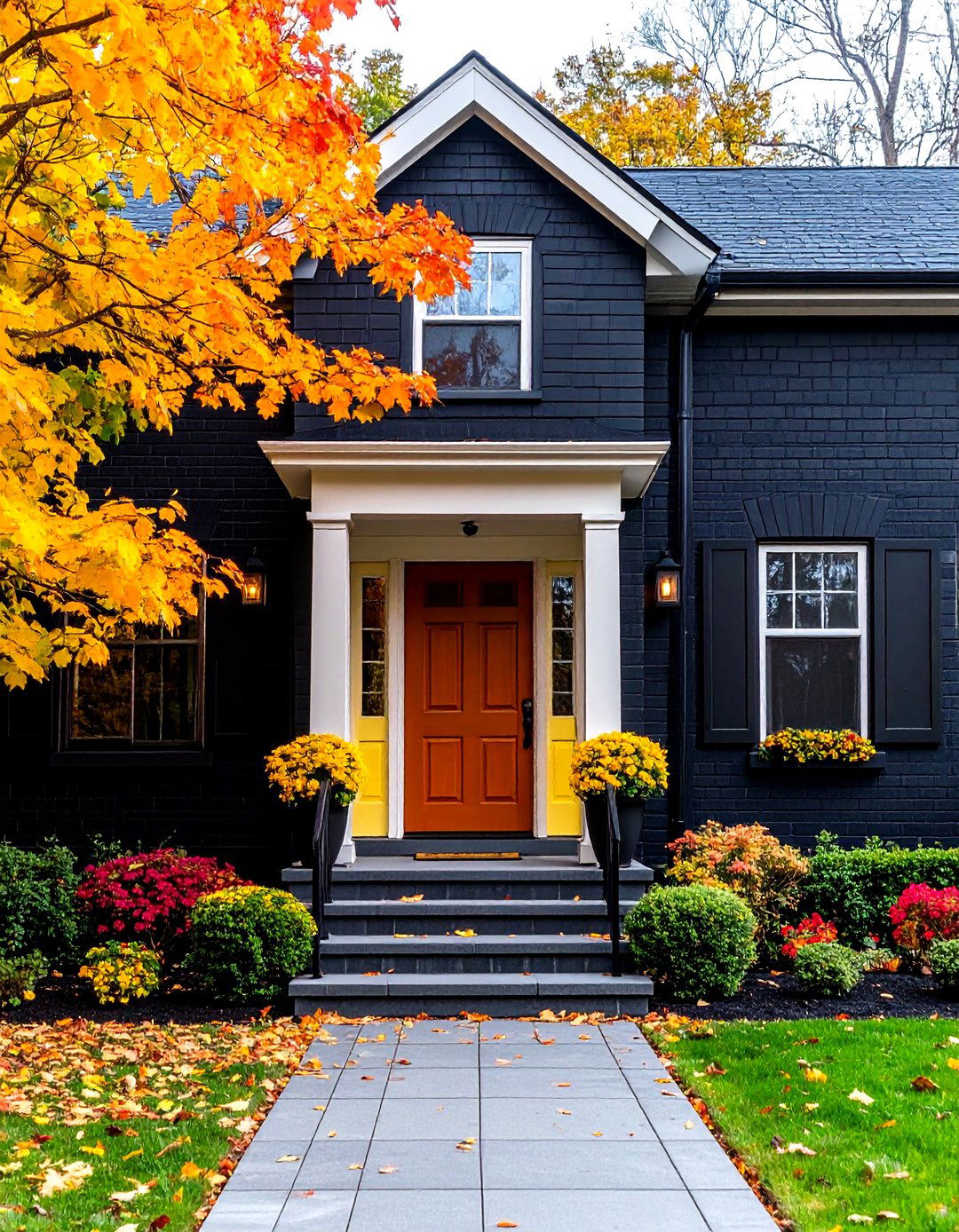
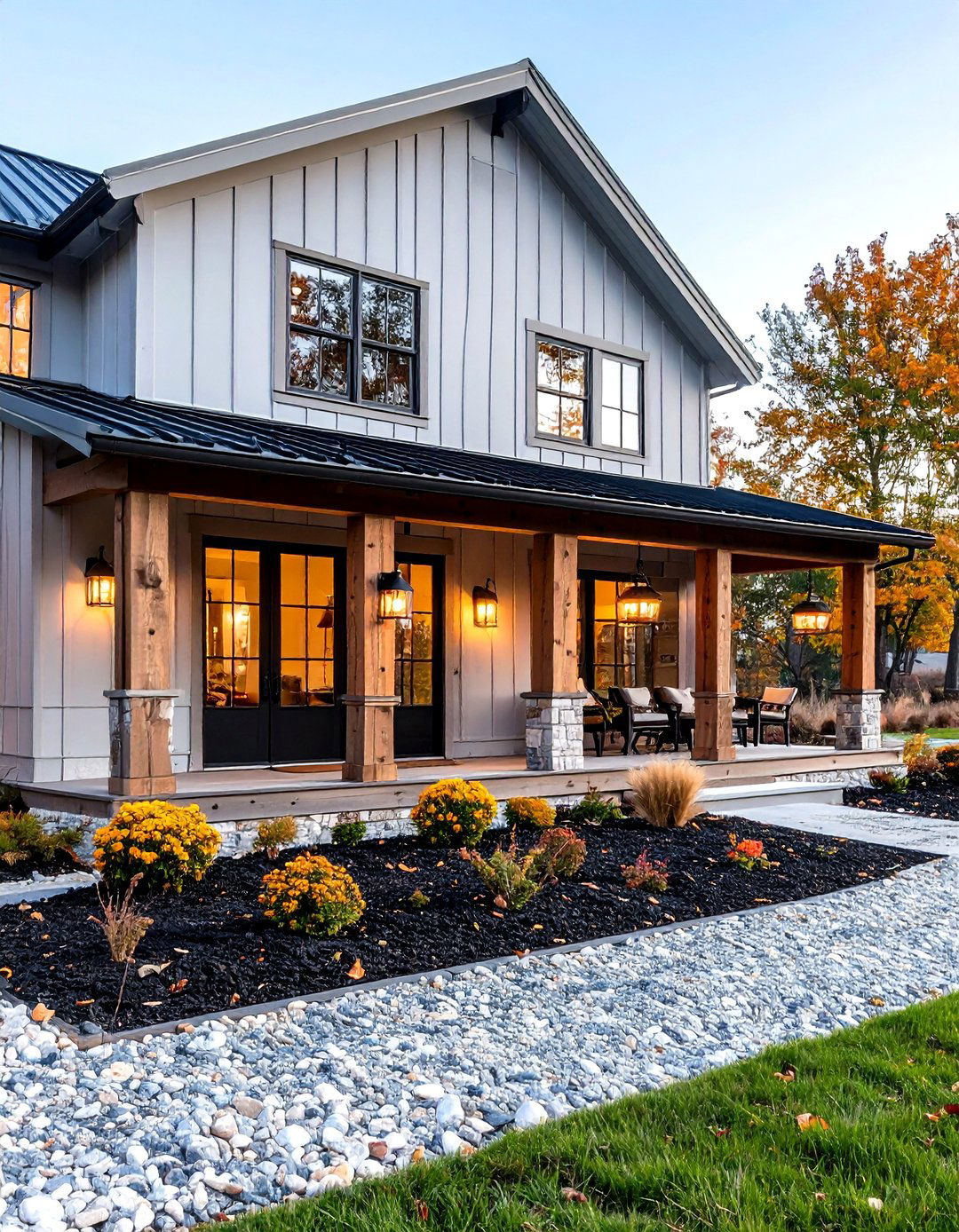
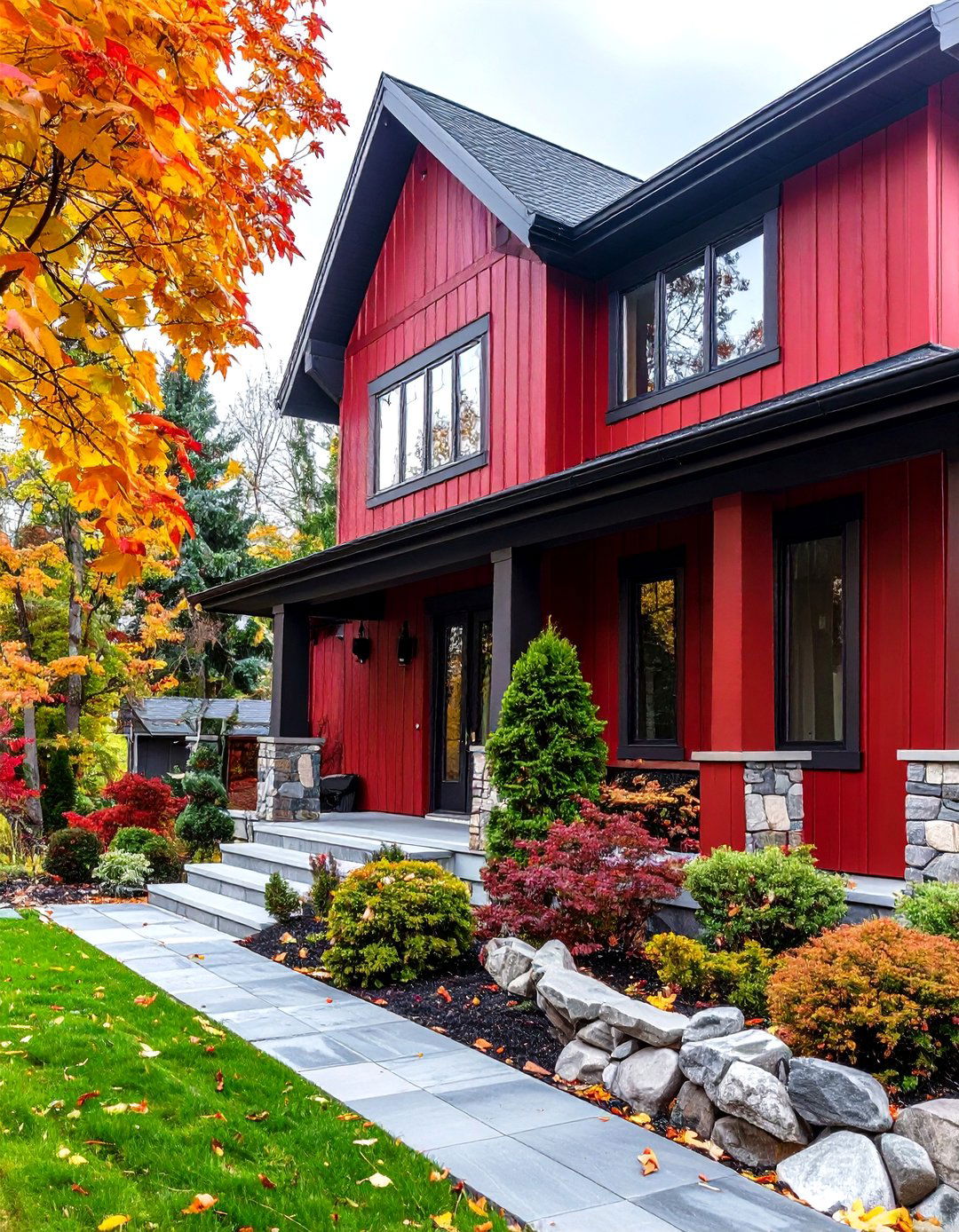
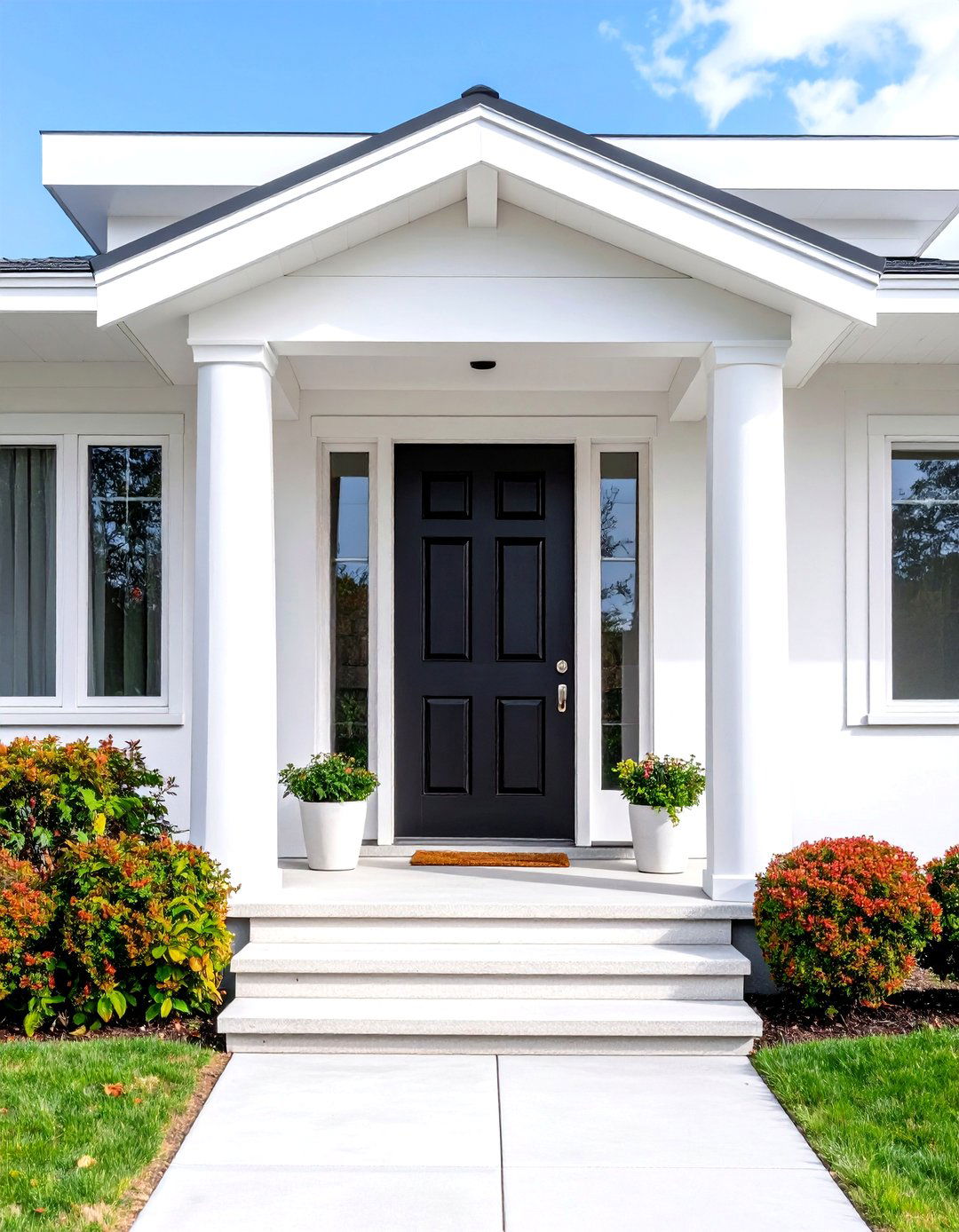
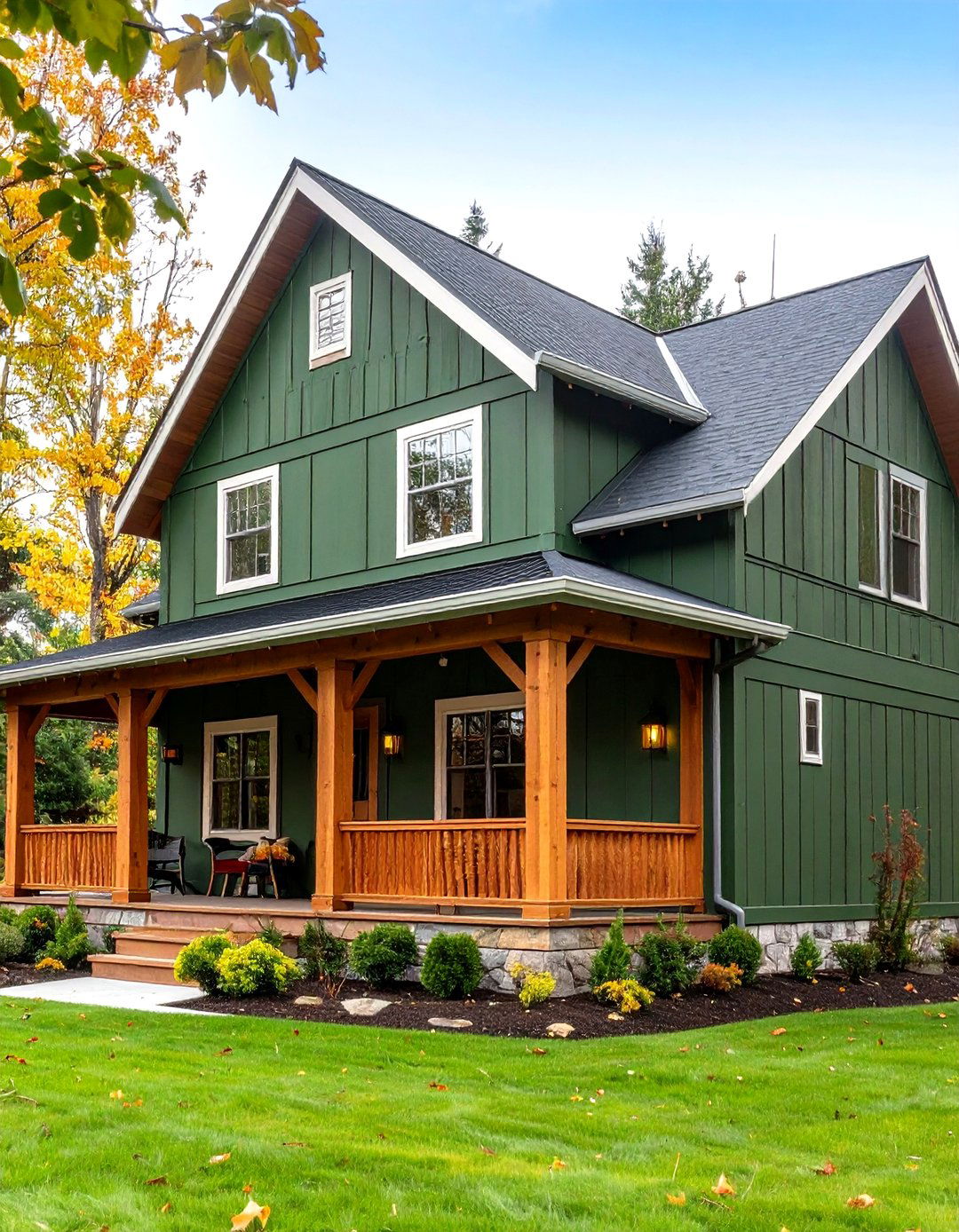
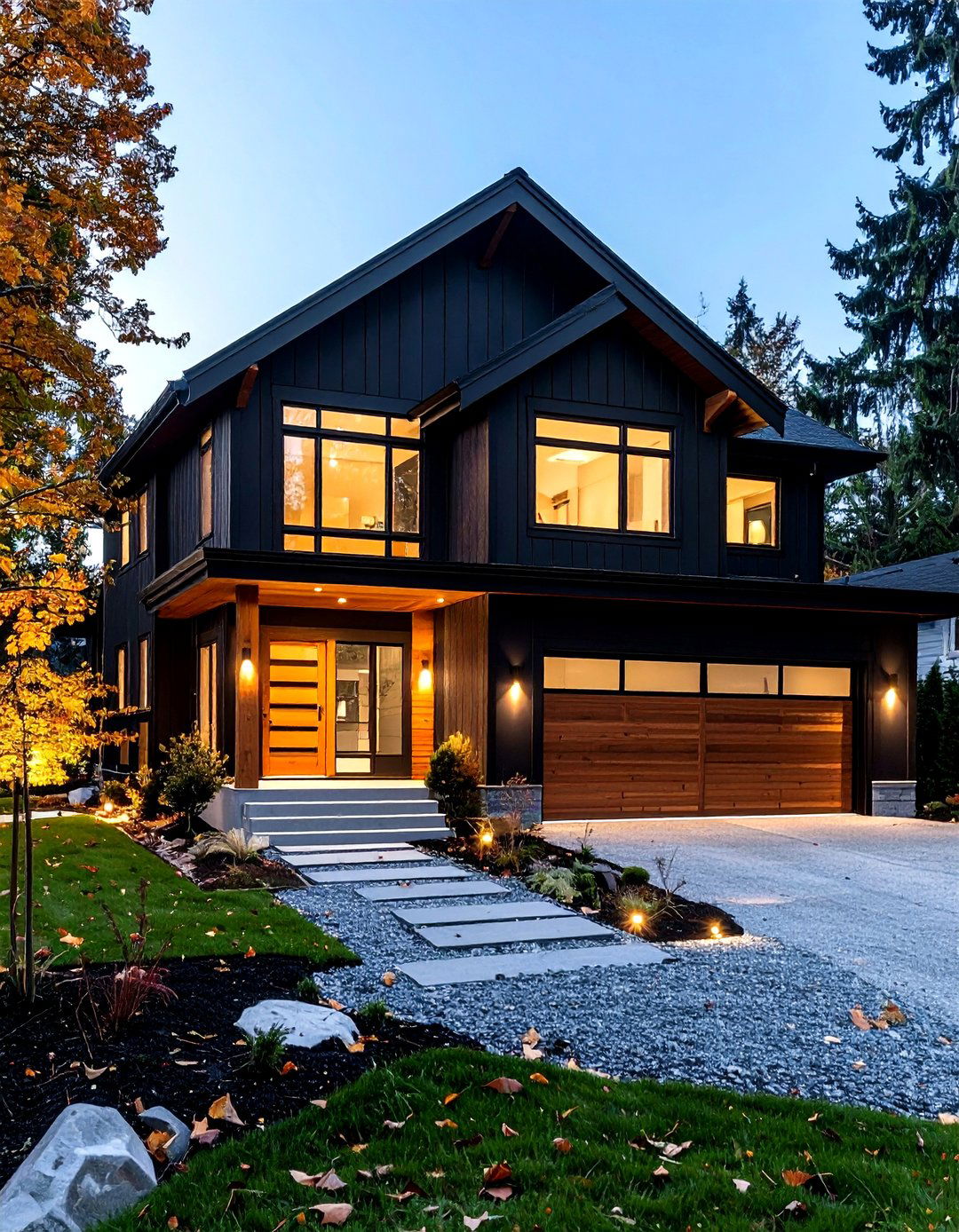
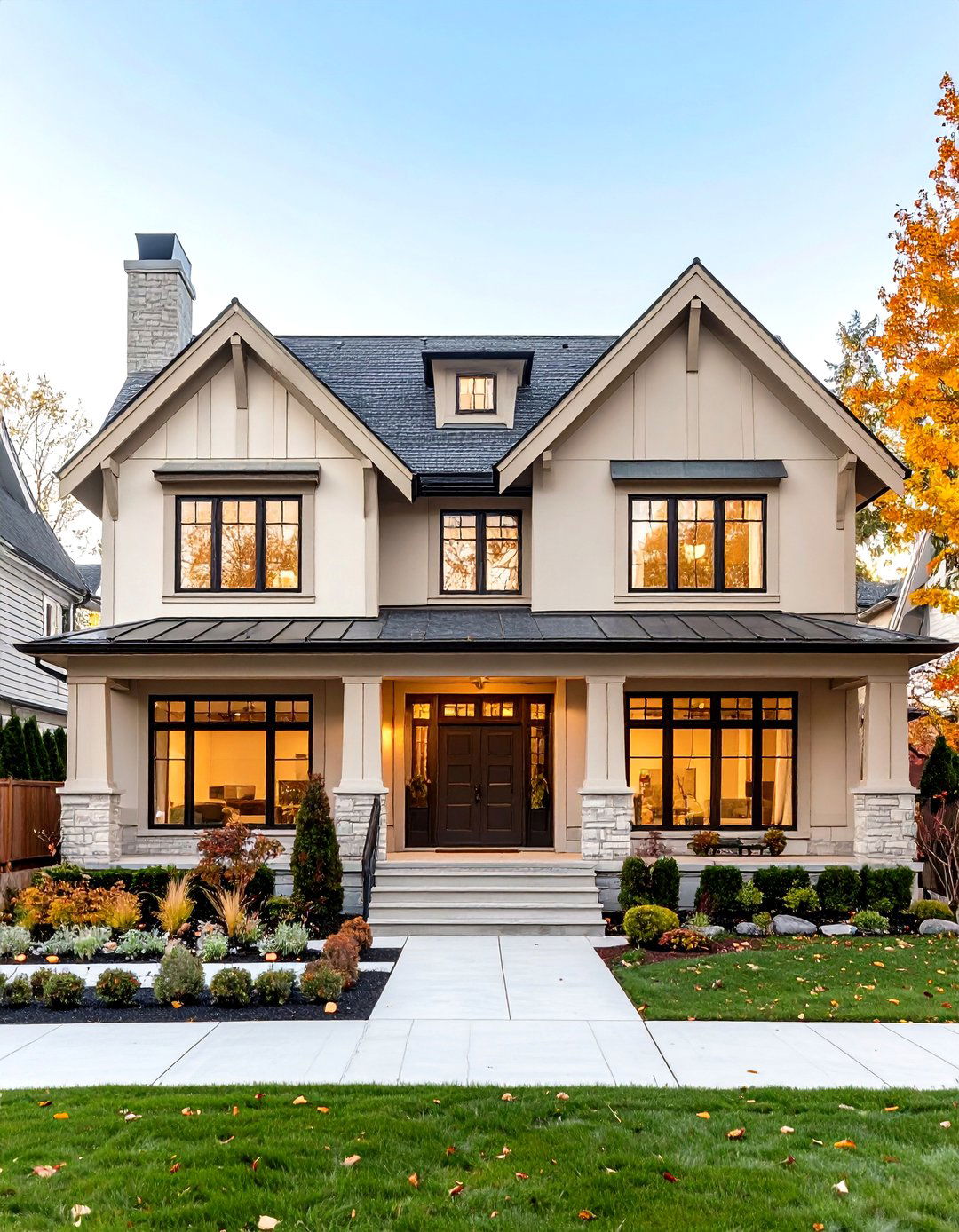
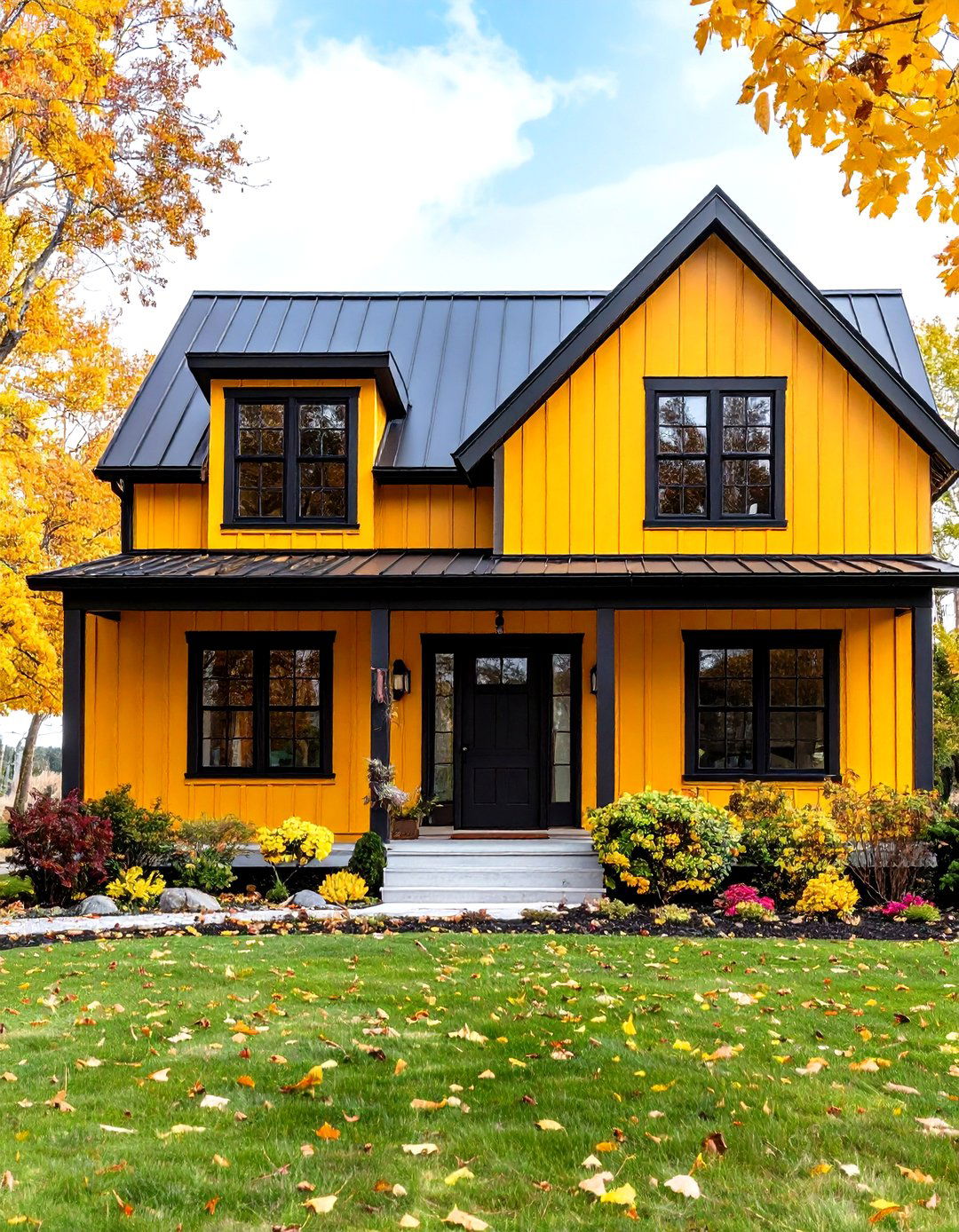
Leave a Reply